
Have You Traveled to Another Country? IELTS Speaking (10 Example Answers)
In part one of your IELTS Speaking test, the examiner may ask, “Have you traveled to another country?”
Read on to learn how to answer this question. Below, you can also read 10 great example answers ( go straight to the answers here ).
If You Have Traveled to Another Country
First, say ‘yes, I have.’ Then you need to say a bit more. You can talk about:
- Which country you’ve been to
- How many countries you’ve traveled to
- What your favorite country was to visit
- Why you traveled there
- Who you went with
- What you did there
- If you enjoyed it, or not
- What you liked most about the trip
- If you’d like to return there
- How you traveled there (plane, car, train, boat…)
- Anything else you can think of
If You Haven’t Been to Another Country
No problem. Just say ‘no, I haven’t.’ Then you can say:
- Why you’ve never been abroad
- If you would like to travel abroad in future, or not
- Which country you would like to visit
- Where you’ve traveled to in your own country
- Why you don’t like traveling, if you don’t
- How you would like to travel (plane, car, train…)
- Anything else that comes to mind
Common Grammar Mistake: Using a Finished Time
With the present perfect, you cannot use a finished time . You must use an unfinished time with the present perfect.
A finished time is a time in the past that is finished, for example: yesterday, last weekend, last month, last year, in 2020.
So, this is a good sentence:
‘Yes, I’ve been to Japan.’
And this is an incorrect sentence:
‘Yes, I’ve been to Japan last year.’
If you want to talk about when you went somewhere (in a finished time), you should start a new sentence and use the past tense . For example:
‘Yes, I’ve been to Japan. I went there last year.’
Note that you can use unfinished times with present perfect. Unfinished times are times that are still continuing now. For example: today, this week, this month, this year.
So, this is a good present perfect sentence:
‘Yes, I’ve been to Japan twice this year.’
Focus on Fluency
For all your part-one answers, practice answering as quickly as you can. Focus on fluency , which means no hesitation.
This will impress the examiner.
Remember that part one is only to warm you up .
You cannot get a very high score in part one, so don’t worry about using very clever vocabulary and grammar. Just speak quickly, with quite simple English. That will be fine.
Use the Three-Step YES Method
Also, don’t say too much in your part-one answers.
Just speak for 10 or 20 seconds, then stop with confidence and wait patiently for the next question.
The three-step YES Method can help you give a good-length answer to your part-one questions. Just say:
- Y our answer (‘yes, I have’ or ‘no, I haven’t)
- E xplain your answer (say where you went) or add a few more details
- S top talking (stop confidently, and wait for the next question)
Here are 10 good answers to this question about traveling abroad. See if you can borrow a few ideas for your own answer.
‘Yes, I Have’ Answers
1. Yes, I have. I’ve traveled abroad three or four times. I went to Bulgaria last year on vacation with my family. We had a great time.
2. Yes, I have. I love traveling because it’s so much fun to visit different countries and cultures. So I’ve been traveling for most of my life.
3. Yes, I have been to many foreign countries. I live in Europe, so it’s really easy to travel abroad. I usually travel by plane or train, which are both very affordable these days.
4. Yes, I have. I went to the Philippines four years ago on a business trip. But unfortunately, I didn’t have much free time to explore the country.
5. Yes, I have. I’ve been to Thailand, Cambodia, China, and Vietnam. I think my favorite place was Vietnam because I met my girlfriend there.
6. Yes, I have. When I was a child, my parents took me to Colombia during our summer vacation. I remember lots of sunshine and eating really tasty pancakes and pastries.
‘No, I Haven’t’ Answers
7. No, I haven’t. But I would love to travel all around the world. I think traveling abroad would be an amazing adventure.
8. No, I haven’t. But I love to travel around my own country. I’m from China, so there are hundreds of fascinating places to visit.
9. No, unfortunately, I haven’t traveled abroad yet. I’m currently a student, and when I find a job and save up some money, I plan to start traveling.
10. No, I haven’t. To be frank, I’m not really interested in traveling. I’d rather spend my time and money on building my business.
Now You Give It a Go
Set up the recorder on your phone and ask yourself, “Have you traveled to another country?”
When you answer, try to be fluent (no hesitation) and follow the three-step YES Method.
Afterward, listen to your recording and try to notice any mistakes or hesitation. Then answer again, a little better each time.
If you keep repeating this process, you’ll soon be ready to give a great answer to this part-one IELTS Speaking question.
Related Posts
A common part-one topic in IELTS Speaking is hobbies. And one question they might ask…
If the topic is traveling in part one of your IELTS Speaking test, then your…
In part one of your IELTS Speaking exam, you may well be asked a question…
In your IELTS Speaking test, you might be asked about pets in part one. A…
If the topic is travel in part two of your IELTS Speaking test, then you…

- Skip to main content
- Keyboard shortcuts for audio player
Goats and Soda
- Infectious Disease
- Development
- Women & Girls
- Coronavirus FAQ
Flying Overseas? There's A LOT You Need To Know. Here's A Guide
David Schaper
Each week, we answer frequently asked questions about life during the coronavirus crisis. If you have a question you'd like us to consider for a future post, email us at [email protected] with the subject line: "Weekly Coronavirus Questions." See an archive of our FAQs here .

I live in the U.S. and am considering a trip to another country. What do I need to know about international air travel at this stage of pandemic?
First of all, you have plenty of company. International air travel is expected to surge this summer. Americans are thinking of European vacations again. "We've had people asking a lot about Europe," says Chicago-area travel adviser Kendra Thornton of Royal Travel & Tours. "Not necessarily booking but wanting to keep tabs on it."
In addition, residents of the U.S. with family members in other countries are eager for a reunion after pandemic-enforced separations. People may be traveling abroad for work as well.
They'll run into quite a range of travel restrictions and entry requirements.
NPR correspondent Jason Beaubien was surprised to see his face on a giant screen in an airport in Sierra Leone, where thermal scanners take the temperature of everyone in the crowd simultaneously. Airport personnel takes aside anyone who registers a fever for evaluation.
Travelers headed to Peru should pack a face shield. You have to wear it in crowded spaces such as an airport.
What's more, the protocols may change as new variants, such as the highly contagious Delta variant , spread and take hold in different countries.
So if you're itching to travel abroad or have already booked a trip, you probably have a lot of questions. Here are some guidelines that might help you deal with the new rules of international flight:
The Centers for Disease Control and Prevention says to get vaccinated before you go. Air travelers should be fully vaccinated regardless of the risk level in the country you're visiting, according to the health agency. There's still a lot of virus circulating.
Keep track of the ever-changing guidelines and restrictions for your destination. You can check specific travel requirements through the U.S. State Department website or your destination's Office of Foreign Affairs or Ministry of Health.
In addition, the CDC provides guidance on travel to other countries, which are ranked from "very high" risk of COVID-19 transmission to "low" (among them China, Iceland and Rwanda).
Avoid countries in the "very high" category unless it is essential travel. There are 60 countries on this list, ranging from Argentina to Yemen.
Some countries are closed to visitors but make exceptions. Belgium, Canada, the United Kingdom and Uruguay are a few examples. But some of these "no visitor" countries may make exceptions for the death or serious illness of a family member. If those are your circumstances, you may be able to visit. But the authorities might not/will not take your word for it. Expect to have to show proof of the reason for the visit, such as a death certificate or a doctor's note about a family member's illness. You can inquire about rules in your destination by contacting the American Embassy or Consulate there, or the country's embassy in the United States.
And changes occur almost daily in this matter, so it's good to keep an eye on the State Department's or the country's official website for updates.
Bring your vaccination card. Some countries want to see your vaccination card, so make sure your official CDC vaccination card is filled out with the date of your dose or doses (if you received a two-dose vaccine). It's a good idea to make a copy of the card or have a photo on your phone as backup, suggests Thornton, the travel adviser.
Lost your card? Reach out to your vaccination provider or contact your state health department's immunization information system .
You can also present the World Health Organization international certificate of vaccination, also known as a yellow card . You can ask your vaccine provider to add your COVID-19 vaccination info if you already have a card. Or if you need one, you can purchase it through the U.S. Government Bookstore , which tells NPR it has seen a 55% increase in sales in the last six months. Cards are on back order but should be available by the end of June. Or you can purchase one from the WHO, which means waiting at least a week for shipment from Switzerland.
What about vaccine apps? Vaccine apps that show your record could be accepted as well, but there's no guarantee that border control will accept these as proof, so bringing a paper record is a good idea.
Citizens of the European Union will soon have a Digital COVID Certificate system that provides a scannable QR code to verify vaccination status and coronavirus test results. This should smooth travel between member states but won't help a vaccinated tourist from outside the EU.
Airlines are trying to help their customers meet the vaccination and testing requirements of various countries by developing their own apps. The International Air Transport Association has rolled out its own IATA Travel Pass , which many major airlines around the world will use.
But officials say calling it a vaccine passport, as many people are, is a bit of a misnomer.
"It's more of a digital credential associated with your vaccination or testing profile," the IATA's Nick Careen says. "So the consumer can use that to help them through their passenger journey."
British Airways, Japan Airlines, Qatar Airways and Emirates are among the global airlines running trials of IATA's travel pass app, which is expected to go live soon.
Other airlines, including American, will be using an app called VeriFly.
American's Preston Peterson told NPR that "because the requirements for entry differ by almost every single country and, in some cases, by the region within a country," the app will give the customer "the peace of mind to know that they comply with those different regulations."
"A customer can submit their documentation, have it verified and then they receive a green check mark, or effectively, an OK to travel status, that we as the airline trust, the customer can trust and then they know they're ready to go," Peterson says, adding that the app will update in real time as entry requirements for various destinations change.
But even proof of vaccination may not be sufficient to ease your entry. Some countries don't care if you have a vaccine card, as they can be easily faked or forged, or a digital vaccine pass on an app. They'll still insist on a PCR test to determine if you're infected several days before flying into and out of their airports. Most countries are asking airline personnel to verify the test. A positive result means the trip is off. That's the case in Egypt, some European countries and Israel. And you can't leave Ben Gurion Airport in Tel Aviv, Israel, after arrival in the country without taking a coronavirus test; airport personnel usher everyone to the clinic tent right after baggage claim.
Even if you're vaccinated and tested negative for the coronavirus, you may have to quarantine. Samoa, for example, requires a minimum 21-day quarantine for all incoming passengers.
Keep up on testing requirements before your departure. They definitely change. Because of the high rate of cases, Namibia on June 1 changed its visitor entry rules from a simple self-test for the coronavirus to a typically more expensive laboratory test conducted before leaving your home country and not older than seven days before your arrival.
The State Department site dates its updates so you can see when a change was made, and it also provides links to specific country guidelines provided by U.S. consulates and embassies.
Check the latest requirements three days before your flight just to make sure. Some airports, such as Chicago's O'Hare International and Los Angeles International , offer on-site coronavirus tests, but these can be pricier options than you might find elsewhere. And airport testing sites might have limited hours, so check before you head to the airport.
Get alerted. It's a good idea to sign up for notices on international travel from the State Department, says Zane Kerby, president of the American Society of Travel Advisors. In Portugal, for example, increased cases of the COVID-19 variant known as Delta, identified as likely more transmissible and causing more severe disease, has put the country at a higher risk level.
Bring proof of health insurance. Even if you're a veteran traveler who knows that your insurance carrier covers you overseas, be sure to check on COVID-19 coverage before you leave. Some countries, such as Argentina, require that you have a notice from your health insurer that specifically mentions COVID-19 coverage as proof that you are covered for the virus. Cambodia requires all foreigners to purchase insurance from the government on arrival: $90 for 20 days of coverage. Also check to see if your policy covers medical evacuation insurance, or consider buying a separate policy if not. Travel specialists say it's a wise investment during a pandemic.
The CDC offers great background information on health insurance and foreign travel on its site . If you buy a supplemental plan, the State Department site recommends looking for one that will pay for care directly rather than reimburse you so out-of-pocket expenses are limited.
Brush up on testing requirements. All air passengers coming to the United States — residents who have traveled abroad and visitors as well — are required to have a negative coronavirus viral test no more than three days before travel or documentation of recovery from COVID-19 in the past three months before they will be allowed to board a flight to the United States.
That test can be either a so-called molecular test done at a laboratory that can detect specific genetic material from the virus and is the most precise test, or an antigen test — which can be done as a self-test — which detects proteins on the surface of the virus if you were infected.
Embassy and consular notes on the State Department's travel website offer detailed information on locations for a molecular test in each country if available. In some countries. the test is free. Or it could cost up to $200. Check the State Department travel site, which offers frequently updated, detailed testing requirements and resources for many countries.
Self-tests are a limited option. Right now, only two airlines are making self-tests easily available United and American – and you need to be able to perform the self-test while conducting a telehealth visit with a designated clinic. For more information, contact United or American if you will be returning home on either carrier or eMed.com , a telehealth company handling the testing to see if you qualify for the self-test, even if you're on another carrier.

Coronavirus FAQ: Should I Get My Antibodies Checked After I Get Vaccinated?
If you're not vaccinated, though, you may want to choose a lab test rather than the self-test for re-entry, "especially if you're returning from a country experiencing high rates of COVID-19," says Matthew Binnicker , vice chair of practice in the Department of Laboratory Medicine and Pathology at the Mayo Clinic. That's because the lab test can be more accurate than the self-test, according to guidelines published by the Infectious Diseases Society of America .

Coronavirus FAQ: I Had COVID. Should I Get The Vaccine?
Don't forget your mask. While some jurisdictions around the world are beginning to loosen COVID-19 restrictions, the Transportation Security Administration in late April extended its mask requirement to Sept. 13 (and could extend it further) for U.S. airports and on board U.S. airlines. Many foreign carriers have the same rule.
Fran Kritz is a health policy reporter based in Washington, D.C., who has contributed to The Washington Post and Kaiser Health News. Find her on Twitter: @fkritz
- coronavirus
- COVID testing
- international air travel
An official website of the United States government
Here’s how you know
Official websites use .gov A .gov website belongs to an official government organization in the United States.
Secure .gov websites use HTTPS A lock ( Lock Locked padlock icon ) or https:// means you’ve safely connected to the .gov website. Share sensitive information only on official, secure websites.

Visas for U.S. citizens traveling abroad
If you are a U.S. citizen planning to travel abroad, you may need a visa to enter a foreign country. Learn how to find your destination's visa requirements.
While not all countries require visas for American travelers, many do. Look up your destination using the U.S. State Department's Learn About Your Destination search tool . On the country’s information page, you will find entry, exit, and visa requirements. You will also find travel advisories and a link to the country’s embassy.
LAST UPDATED: December 6, 2023
Have a question?
Ask a real person any government-related question for free. They will get you the answer or let you know where to find it.
Get Daily Travel Tips & Deals!
By proceeding, you agree to our Privacy Policy and Terms of Use .

The Ultimate Checklist for Traveling Abroad
Shannon McMahon
Editor Shannon McMahon is always planning her next trip and often writing in her travel journal. Follow her on Twitter @shanmcmahon_ and on Instagram @shanmcmahon .
Shannon joined SmarterTravel in 2015. A former news reporter, she's lived in the south of Spain, spotted elephants in Sri Lanka, gone spelunking in the Caribbean, hiked Jordan's Petra Basin, interviewed Sao Paulo's Michelin-Star chefs, and explored China via bullet train. Travel trends, news oddities, and her visits to up-and-coming destinations are some of her favorite things to write about.
Her stories have also appeared online on USA Today, The Sun, Huffington Post, Business Insider, blog.TripAdvisor.com, Boston.com, and more. Her educational background is in journalism, art history, gender studies, Spanish, and film. She's been quoted as an expert travel source by CNBC, People.com, MarketWatch, The Washington Post, USA Today, and more.
The Handy Item I Always Pack : "Plenty of extra thick hair elastics. They tame my frizzy curls and come in handy in a surprising number of packing and hotel dilemmas."
Ultimate Bucket List Experience : "Climbing (yes, climbing, it's steep!) the Great Wall of China before it's gone."
Travel Motto : "Travel is fatal to prejudice, bigotry, and narrow-mindedness." - Mark Twain
Aisle, Window, or Middle Seat : "Window, of course."
Email Shannon at [email protected] .
Travel Smarter! Sign up for our free newsletter.
Traveling internationally is an adventure best planned ahead of time, and not just when it comes to booking flights and packing. Sure, showing up at your gate sans passport or forgetting melatonin for your red-eye flight can put a damper on your long-awaited escape, but most of your preparation should be dedicated to ensuring health, safety, and financial necessities are covered. To save you some prep time, we’ve compiled this international travel checklist for your next long-distance journey.
Focus on Safety First
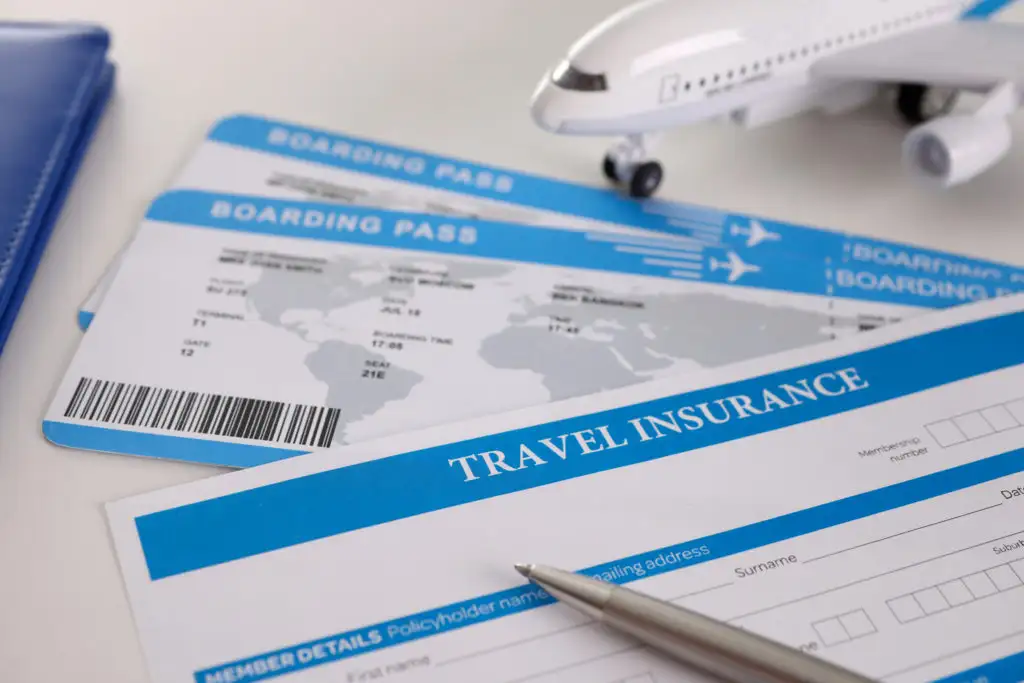
One of the easiest and most important items on an overseas travel checklist is also arguably the most ignored. Travel insurance and State Department alerts can be incredibly important in emergencies abroad, but many tourists bet they won’t become part of the small percentage of travelers who require evacuation assistance or protection from hotel or flight cancellations.
Subscribing to the State Department’s STEP alerts for your destination can help you stay up to date on upcoming and current travel restrictions, strikes, and areas of political unrest. Any alerts you receive will let you know whether or not to plan for some unexpected obstacles in advance.
Travel insurance can cost as little as a few dollars per travel day and cover anything from replacing a broken camera to emergency medical attention, potentially saving you hundreds, maybe even thousands of dollars.
Get Your Travel Documents and Credit Cards in Order
Make sure your passport and any necessary travel visas are up to date. Some countries require a passport to be valid for at least six months after your scheduled return, so make sure you won’t be turned away or delayed at customs because of an old passport. Not sure if you need a visa? See this list of every country that requires a visa for Americans .
Keep physical and digital copies of your passport and all your paperwork in case anything is lost, and give copies as well as your itinerary and contact numbers to family and friends whom you can contact in case of an emergency.
Notify your bank and credit card companies about your travel dates so they don’t deny your purchases, and ask about international ATM fees so you can find out which ones won’t charge you. It’s always a good idea to bring multiple cards in case one stops working.
Don’t underestimate how helpful a cell phone photo of your passport can be. Whether you have to go to the consulate and report it lost, or are just filling out a customs card and need your passport number, it will likely come in handy. Email the image to yourself to have an extra digital copy in case your phone runs out of batteries or goes missing. You may also want to bring a spare copy of your passport photo on your trip; having it handy will speed the processing of a new document.
Your Questions About Online Passport Renewal, Answered
Get Vaccinated
It’s best to get the necessary vaccinations out of the way as soon as possible since it can take a few weeks to build full immunity. Some also require multiple doses, which may need to be administered over days, weeks, or even months. Talk to your doctor about getting the CDC-recommended shots , as the protocol for vaccines varies by country. For example, dozens of countries require proof of a yellow fever vaccination if you’ve been to at-risk areas. A travel clinic can help you sort out which vaccinations and medications you might need.
Keep your vaccination certificate in your carry-on in case customs requires you to present it when entering the country.
Study Up on Your Destination
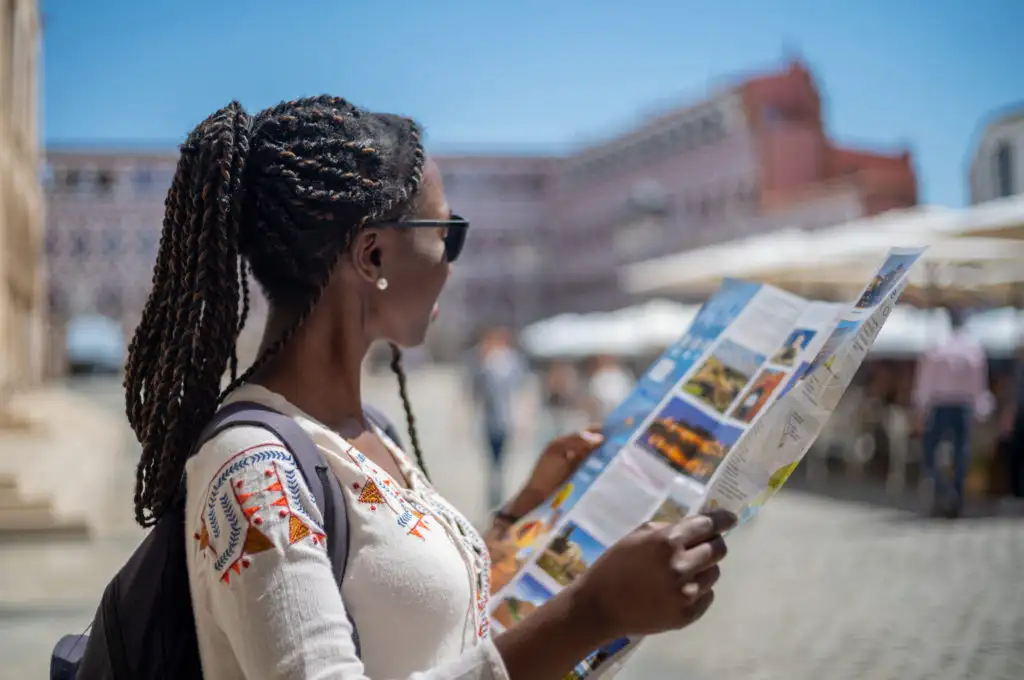
Whether you’re a travel app connoisseur or more of a paperback guidebook person, having some source of knowledge about your destination is invaluable. Read about the region you’re traveling to in advance to gain insight into important information such as currency exchange rates, useful phrases, tipping norms , appropriate clothing, and cultural/legal customs. It’s best to be prepared so you don’t land yourself in a compromising situation.
8 English Words You Should Never Use Abroad
Make Sure Your Home Is Cared For
There’s nothing worse than realizing once you’re six time zones away that you forgot to stop your mail delivery or ask someone to water your expertly cultivated house plants. Make sure your daily tasks are covered before you leave, or appoint a trusty friend to do them for you.
You can find a house or pet sitter to do your chores if you’re willing to list your home on TrustedHouseSitters.com . Plus, you could find lodging through the site for your trip abroad if you’re willing to spend some time with someone else’s furry friends.
Stay Connected
Want to stay in touch while traveling abroad? If you haven’t taken your phone overseas before, call your mobile provider to make sure it will work in the country you’re visiting and to ask about international phone plans that might be available. If your carrier’s plans are expensive, a mobile hotspot can be a cost-effective alternative.
Download the Necessities
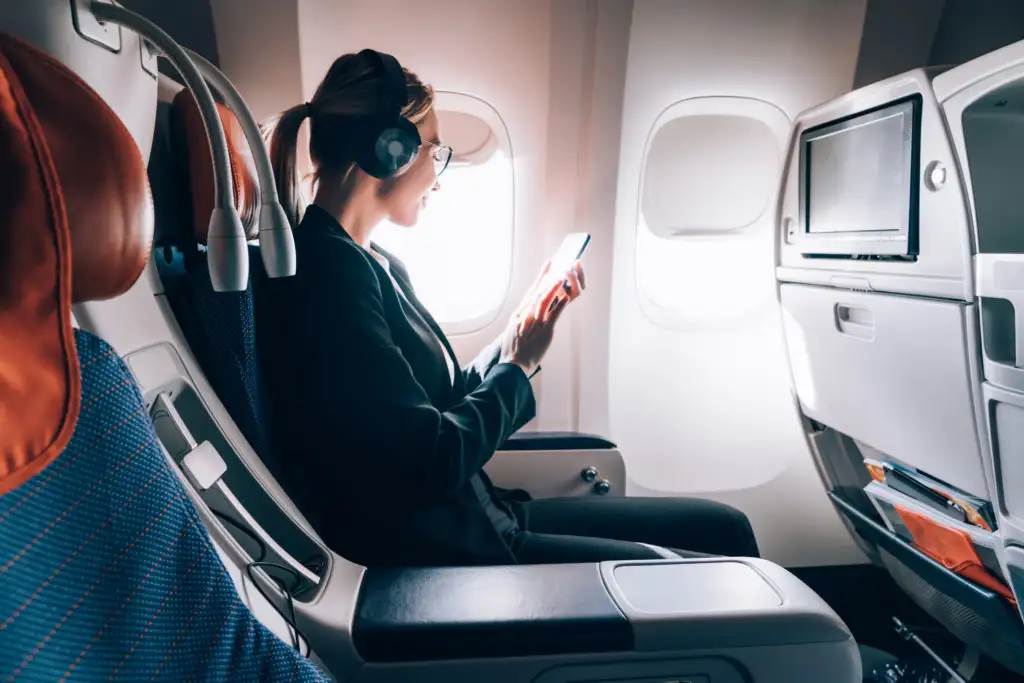
Sometimes the most important thing you’ll pack is in your smartphone rather than your suitcase. Offline maps are your best friend when it comes to traveling with limited data or battery. You can find Wi-Fi in many places, but downloading offline maps through Google Maps or CityMaps2Go will allow you to follow your GPS without using up battery life and roaming data.
Downloading in-flight entertainment could also save you if your TV malfunctions on the long-haul flight. Streaming won’t be available without consistent in-flight Wi-Fi (which you shouldn’t ever depend on) but you can pre-download movies and TV shows through Amazon Prime , and music streaming service Spotify allows paying users to download tracks for offline use with the press of a button.
Don’t forget a portable backup charger . Watching hours of your favorite TV show is sure to drain your battery life, and there’s nothing worse than finally finding a Wi-Fi spot only to have your phone die.
The 10 Best Travel Podcasts
Check Your Destination’s COVID Policies
Make sure you’re aware of your destination’s most up-to-date policies regarding COVID and vaccination status. Check with the State Department website well before your trip to make sure you meet the requirements, and check in periodically to monitor for potentially changes. Similarly to the US, mask-wearing policies may be left up to the discretion of an event or venue, so its a good idea to have a few masks on hand when out and about.
Pack These Essentials
While the contents of your checked bag will largely depend on the climate you’re visiting, you’ll want most of your trip’s essentials on hand in your carry-on. Start with this international travel checklist of items to pack:
- Passport and visa
- Medications
- Insurance and ID cards
- Cash, debit cards, and credit cards
- Pen to fill out customs forms
- Portable charger
- Earplugs , eye mask , and sleeping pills
- Electrical converters and adapters specific to your destination
- Antibacterial wipes
- Sweater / scarf in case the plane is chilly
- Cell phone and charger
For more ideas, check out our ultimate packing list .
Consider taking photos of your packed suitcase (both inside and out) in case it gets lost. That way, airline employees will know what to look for, and you’ll know what was inside in case you don’t get it back and need to file a claim.
Book Your Stay With SmarterTravel Hotels
An important item to check off the list: make sure you have a place to stay when you reach your destination! Book your hotel for a great rate with SmarterTravel Hotels .

Editor Shannon McMahon writes about all things travel. Follow her on Twitter @shanmcmahon_ .
Editor’s note: This story was originally published in 2016. It has been updated to reflect the most current information.
You Might Also Like:
We hand-pick everything we recommend and select items through testing and reviews. Some products are sent to us free of charge with no incentive to offer a favorable review. We offer our unbiased opinions and do not accept compensation to review products. All items are in stock and prices are accurate at the time of publication. If you buy something through our links, we may earn a commission.
Top Fares From

Don't see a fare you like? View all flight deals from your city.
Today's top travel deals.
Brought to you by ShermansTravel
Spain: 8-Nt Madrid, Seville, Granada, Valencia...

Luxe, 12-Night Spain, France, Monaco &...
Regent Seven Seas Cruises

Ohio: Daily Car Rentals from Cincinnati

Trending on SmarterTravel

An official website of the United States government
Here’s how you know
Official websites use .gov A .gov website belongs to an official government organization in the United States.
Secure .gov websites use HTTPS A lock ( Lock A locked padlock ) or https:// means you’ve safely connected to the .gov website. Share sensitive information only on official, secure websites.
- For Travelers
Travel Overseas
This section provides information for international travelers about planning for your trip, returning home, navigating passenger processing. You can also find brochures about traveling overseas.
Travel Alerts
Travel Alerts are issued when short-term conditions that pose risks to the security of U.S. citizens.
Travel Warnings
Travel Warnings are issued when long-term conditions make a country dangerous or unstable and U.S. citizens should avoid or consider the risk of traveling to that country.
Preparing for your Trip
A passport is required for overseas travel. It is recommended to make a copy of your passport and put it in a separate place. Carry your passport - do not pack it in your checked luggage. You must present it to the Customs and Border Protection officer upon arrival in the United States.
Find out if you need to get a visa. United States citizens don’t need a U.S. visa for travel, but when planning travel abroad may need a visa issued by the embassy of the country they wish to visit. If you have a visa, we recommend you make a copy and put it in a separate place. Carry your visa with you — do not pack it in your checked luggage.
Trusted Traveler Programs (TTP ) provide modified screening for pre-approved members, improve security by being more efficient during screenings at ports of entry.
Learn about the types of identification that are required for travel in the Western Hemisphere (Canada, Mexico, Caribbean, Central and South America). There are six types of acceptable documents for crossing US borders.
All children, including infants, must have their own passport or Trusted Traveler Program document for U.S. entry. Carry documents for traveling with minor children.
- If you are escorting a minor child without the parents, have a letter from both parents indicating that you have permission to travel with the minor.
- If the child is accompanied by only one parent, the parent should have a note from the child's other parent. For example, "I acknowledge that my wife/ husband is traveling out of the country with my son/ daughter. He/She/ has my permission to do so."
- If a single parent has sole custody, a copy of the court custody document can replace a letter from the other parent.
If bringing a dog, have a health certificate and proof of rabies vaccinations from a veterinarian in your country of residence. Prior to your trip, check with your airline for its rules on transporting animals – many airlines require a health certificate.
Returning Home
Find out what is prohibited or restricted before you pack for your trip. Products that would harm community health, public safety and domestic plant and animal life are restricted from entering the United States and are subject to seizure by the U.S. Customs and Border Protection Agency .
Other considerations for packing:
- Carry only medication needed for the trip in its original container. Do not pack it.
- Carry only the jewelry needed for the trip. Do not pack it.
Navigating Passenger Processing
When planning connecting flights to or from the United States, allow at least two hours between flights. Allow time for CBP processing that must be completed at your first port of entry.
If entering the United States by air or sea, you will receive en route a CBP Declaration Form 6059B and, if you are not from a Visa Waiver Program country, a CBP Form I-94 Arrival/Departure Record . Complete all sections of the forms.
Review the CBP Inspection Process before your travel. Listed below are general steps for the inspection process.
- On your U.S. arrival, go to the primary CBP passport control area. The CBP officer will ask to see all of your travel documents and the completed CBP forms. The officer may refer you for a secondary screening.
- Proceed to baggage claim to pick up luggage.
- Go to the CBP customs inspection checkpoint and show your declaration to the CBP officer, who may examine your bags and refer you for a secondary inspection.
- Pay duty, if applicable.
Traveling Overseas Resources
These resources can help navigate traveling overseas.
- Know Before You Go – Regulations for International Travel
- International Travel Tips – Online resources for common questions about international travel
- Welcome to the United States – A Guide for International Visitors
- Import/Export Forms – Travel documents and forms
- Ports of Entry (Air, Land, Sea) – Locate the ports of entry into the United States
- How Do I - For Travelers
- LATIN AMERICA & CARIBBEAN
- MIDDLE EAST
- US & CANADA
The Complete Beginner’s Guide to International Travel

So you’ve decided to travel internationally, have you? Traveling to another country is something I wish for everyone to experience at least once in a lifetime.
Unfortunately, not everyone has the privilege to do so. But for those of us with passports that allow us such opportunity, it’d be a shame to never explore an international destination in our great, big, beautiful world !
It might seem a bit scary to take your first international trip, but I promise it’s not that bad. To help you, I’ve put together this thorough guide on everything you need to know in order to have a successful international trip ! Let’s get straight to it.
Before You Depart for Your Trip
There’s quite a bit to get ready before your international trip. But, don’t worry. It’s all doable, and it’ll all be worth it!

Apply for a Passport
First things first. In order to travel internationally, you’ll need to have a valid, unexpired passport . On top of that, many countries require you to also have at least three or even six months validity left on your passport from your date of travel. So, if you don’t have a valid, unexpired passport or your passport is expiring in three to six months, it’s time to get a new passport before your trip. This process can take a couple months! So plan ahead, and submit your passport request early to save yourself stress and/or expediting fees closer to your departure date.
If this is your very first passport, your last passport was from when you were under 16 years old, your previous passport was lost, stolen, or damaged, or your last passport was from 15 or more years ago, you will need to apply for your passport in person. Here are the official steps for the new passport process .
If the above doesn’t apply to you, you simply have to renew your passport. You can do this via mail. Here are the official steps for the renewal process .
Choose Your International Destination
Yipee! Now that you’ve either already got your passport or have applied for a new one, you can choose your international travel destination. This is largely based on your own interests. But as this is your first trip internationally, keep in mind things like language, similarity in culture to back home, and ease of travel-related infrastructures (like trains or buses).
Apply for Any Visa(s)
Once you have chosen your destination(s), check whether you need visas or not . A visa is basically permission from a foreign government for you to be in their country. Some countries may grant you a free visa upon arrival with a simple stamp on your passport. Some countries simply require you to fill out a form online and pay a small fee before you can board your flight. And some countries require expensive visas which you must apply for months in advance. It all depends on that country you are visiting, your passport country, and how long you plan to stay. I love using Travisa ‘s free search tool to quickly and easily check what requirements exist for me before I book a flight.
Get Any Necessary Vaccines
Before confirming your destination, you should check if any vaccines are necessary for that place. Some vaccines are simply recommended for your own health, while others are requirements before you will be allowed into the country , or even allowed into other countries afterwards (like yellow fever). The CDC website is an easy way to check this. Some vaccines, like yellow fever, are low in supply and hard to get last minute. Others, like malaria pills, require a doctor’s prescription. So don’t leave this step until the last minute !
Check Travel Restrictions
Lastly, make sure there are no travel restrictions or decision-altering political tensions for your destination. Do this by checking the Travel Department site . Simply type in your destination country’s name into the search bar on the left hand side of the screen.
Preparing Your Finances
Now that your passport is on its way and you’ve settled on your international travel destination(s), it’s time to start thinking about finances.

Some destinations are very credit card friendly. Others operate on only cash and debit cards. And some don’t even have ATM machines! So you’ll need to do a bit of planning before departure to make sure you’re not stressing during your trip, and to save yourself transaction fees.
Get a No Fees Credit Card
Most banks charge a 3% fee every time you use your credit card to pay for a foreign transaction. As you can imagine, this adds up to a lot over the course of even a one week international trip. The good news is, many banks offer credit cards without foreign transaction fees . Do a quick internet search to see if your bank offers such a card.
Get a No Fees Debit Card
Most banks charge a 3% fee and $5 each time you withdraw foreign currency from an ATM. Especially if you are traveling to a mostly-cash destination, this is a surefire way to rack up unnecessary travel costs. To avoid this, consider opening a free brokerage account with Charles Schwab to also receive their debit card with zero transaction fees . I first heard about this card when moving to London to study abroad, and I have to say it’s served me well.
Get Foreign Currency Beforehand
Sometimes, but not often, it’s necessary to have cash in your destination’s currency either before you depart home or right when landing . This might be because your destination does not have ATMs, or because you just want to feel prepared.
If you need foreign cash before leaving home, head to your local bank and exchange currencies. (Just FYI, you’ll get a bad conversion rate doing this, since the bank needs to make commission.) If the currency you need isn’t a common one, your bank won’t have it on hand. In that case, you’ll have to request the exchange online with your bank.
Many countries that don’t have ATMs also don’t allow their currency to be taken outside their country (like Cuba). In this case, you’ll need to bring enough cash with you in a common currency (like USD, GBP, or Euro). Then, when you arrive at your destination’s airport, you can exchange your cash from home for the local currency.
Sign Up for Airline Rewards Programs
You might already know this if you fly domestically, but most airlines have rewards programs. These allow you to accumulate “miles” in your rewards account each time you fly. Eventually, you might rack up enough to redeem those miles in exchange for a flight !
Consider Travel Hacking
Now, some people use airlines rewards programs and racking up miles on steroids, and this is called travel hacking. Many airlines and banks offer huge amounts of miles when you sign up for a card, or offer miles every time you use that card for a purchase. This allows you to rack up enough miles for a free flight or hotel stay more quickly (or sometimes immediately!). I personally have no energy for travel hacking, as I’m not convinced the miles rewards are worth more in dollars than my current card’s cash reward system. But I would be amiss to not mention travel hacking in a guide to international travel.
Planning Your International Trip
Phew! Now that you’ve got all the annoying administrative work out of the way, it’s time for the fun stuff; planning your trip .

I have a whole ten-step guide to planning a trip , so I won’t go into too much detail here. But this can be broken down into planning out your travel itinerary, booking your flight, and booking your accommodation.
Create Your Dream Itinerary
Decide everything you want to see in that destination. I love using Pinterest , Instagram , and travel blogs for inspiration. This is my favorite part of planning a trip , because it gets me so excited about what’s to come! Then, figure out how many days each spot deserves if you are moving around, and figure out how to get from point A to point B (train, cab, ferry?).
Book Your Flight
After you’ve decided how many days you need, you can decide what your travel dates are and start looking for a flight. You can sometimes find good deals really close to the date, but that isn’t guaranteed. I recommend not leaving this until the last minute! I go into more detail how I search for cheap flights in my trip planning guide .
Book Your Housing
Once you have your flight booked, all that’s left is your housing. I love using Booking.com because of its interface, but any hotel search engine will suffice. Also consider AirBnB if you like the idea of staying in a local apartment, or Hostelworld if you’re looking for a social (and often budget-friendly) option. I go into more detail on different types of travel accommodation in my trip planning guide .
Here are some discounts if it’s your first time using AirBnB or Booking.com:
- Save 15% off your first booking by using this link to sign up for AirBnB for the first time.
- Get 10% back from your first booking when you use this link for your first time using Booking.com.
Preparing for Departure
Woohoo! You’ve got your passport, your trip is planned, and all that’s left is to depart. There are a couple things you should do to best prepare for your upcoming international trip.

Scan the Front Page of Your Passport
Before leaving home, make a copy of the front page of your passport (the page with your picture). Either print it out or send it to yourself via email. In case your passport gets lost, stolen, or damaged during your international trip, this makes it easier to have your passport replaced abroad at an embassy.
Expect Cultural Differences
Every country or region has its own culture and norms, and that’s what makes traveling so great. In some places, like the US, it’s common to greet strangers “hello,” or for shop associates and waiters to be extra doting. In other places, like much of Europe, the slower cafe and restaurant culture means your waiter might not come to you unless beckoned. It’s almost seen as if the waiter is rushing you! Similarly, in Japan, it’s offensive to tip waiters, as it suggests their only incentive to do their job well is receiving your pocket change. No culture is right or wrong, but keep an open mind as you travel, and don’t assume something means the same as it does back home .
Prepare for Language Barriers
Many popular travel destinations have adopted English as a common language due to how many international tourists they receive. So, if you know English, chances are you’ll be fine getting around many travel destinations around the world. But it still doesn’t hurt to learn some basic words in your destination’s language .
Saying “hello” or “thank you” in a person’s mother tongue can go a long way in warming them up towards you. Learning common menu items or words on train station signs will also likely make your life easier and give you more confidence abroad. I love using the free version of Duolingo’s mobile app ( iOS and Android ) for a few weeks before I head somewhere new to learn a language’s basics. Alternatively, you could simply head to Google translate and jot down key words on a small piece of paper before you depart. Then, keep this paper handy while you’re out exploring for easy access.
What to Expect on an International Flight
Even if you’ve flown domestically before, flying internationally can be a whole different experience . Here are my top tips for flying internationally.

What to Pack in Your Carry On
Packing carry on luggage for an international trip is similar in many ways to for a domestic trip. The same rules apply with regards to liquid sizes and electronics. However, as international flights tend to naturally be longer than domestic flights, there are a few extra considerations.
Make sure you are comfortable. Bring your own favorite headphones instead of using the uncomfortable free or for sale ones on board the flight. Also bring an eye mask (and a neck pillow if you need that) so that you can try to sleep a bit. You’ll also want to pack clothing items like one pair of pajamas and one or two proper outfits, in case your luggage is lost or delayed . It would be super inconvenient to buy these things right after you land in a foreign country!
Common Flight Etiquette
No one likes flying. So to make it easier on everyone, here are some best practices for being polite while in the airport and on the plane.
- While in the airport, don’t stand up and crowd around the gate way before your boarding group is called. Everyone will get their chance to board.
- Once on the plane, the middle seat person gets dibs on the inner arm rests .
- Right after the plane lands, don’t rush to pull your luggage from the overhead before the plane doors have even opened (especially if you’re in the back of the plane!). If you’re in a rush to catch a connection you think you might miss, ask the flight attendants before landing if they can help you get off first. Sometimes they’ll make an announcement that everyone should stay seated until those about to miss a connection exit first!
Staying Healthy While Flying
The last thing you want is to get off your flight and feel unwell the first days of your epic trip! Here are precautions you should take to ensure you land in tip-top shape.
- Stay hydrated . Airplane air has less humidity (only about 10 – 20%!), so make sure you are drinking enough water, especially on long haul flights. I always bring a large, refillable water bottle when I fly. I fill it up at an airport water fountain right after passing security and finish it all before boarding. Then, I refill it again to have a full supply while on board. This is important not only for headaches and such, but also to prevent skin breakouts in the days after landing.
- Keep the blood flowing . Not only are you not moving for hours upon hours when flying internationally, but your feet are flat on the floor the entire time, too. This isn’t great for blood circulation, and can cause swelling in your ankles and feet the days after your land. (It’s also just not good for your health to not move!) So, make it a point to get up and walk around the plane. Since you’ll be drinking a lot of water anyways, maybe walk up and down the aisles for some minutes each time you finish using the toilets. Do some stretches , like pulling your feet up to your booty one at a time and holding, or lifting each knee up and holding. If you have a layover with enough time, walk around the terminal for some time before boarding your second flight.
- Stay clean . Even pre-Covid-19, planes and airports have never been the cleanest places to be. Wash your hands frequently with soap, use hand sanitizer , and consider disinfecting your food tray, screen, and arm rests right after getting on board. Make sure not to touch or pick your face too much, especially since it’s already dealing with the dehydrating air!
Flying with Dietary Restrictions
Airplane food is pretty much never great, especially if you aren’t flying first class. But if you’re on a particular diet or have dietary restrictions, you’ll need to plan ahead of time. Consider packing some of your favorite nutritious snacks instead of relying on the salty pretzels you can expect on board. If you have a specific need, like vegan meals, call the airline 24 hours before your flight to put in your request for a special meal . You might also want to double-check the meal request before take off at the gate.
Staying Safe While Traveling Internationally
While the world isn’t the big, bad, scary place we’re often made to believe, that doesn’t mean travel is free of risks.

A lot of the safety precautions and considerations you should take while traveling abroad are similar to those you take at home. But a few aren’t. Here are my main safety tips for international travel.
Solo Travel
By its very nature, traveling alone is more risky than traveling with a companion. Is it significantly more risky? I think not. But that’s not to say you shouldn’t take any extra precautions when traveling alone.
One precaution I take is to always let someone know where I am . If I have a full itinerary planned, I send my mom a summary of each city and accommodation I plan to stay at. If I’m doing something like a hike without any new friends I’ve met, I’ll let the front desk know my plans before I head out. I also try to be confident . Even if I don’t know where I’m going, I try to look like I do! If I need to look directions up on my phone, I might do it before leaving the hotel or shop or restaurant.
Another thing to remember is that traveling solo is not traveling alone . Especially if staying in hostels, you’ll meet other people traveling solo like you are, and you can do activities with them.
Solo Female Travel
Something my loved ones tell me often is how it’s so unsafe to travel alone as a woman. But the truth is, is it perfectly safe to be a woman anywhere in the world? Even when I’m in in the comfort of my home country, I rush to my car when in public garages at night, receive uncomfortable comments from strangers on the street, and face the potential of sexual harassment or even assault. Sexism exists everywhere, not just abroad. Of course, I do take extra precautions as a solo female traveler compared to a male solo traveler. But I also take extra precautions as a female in my home country, too.
These are some of the precautions I take while traveling as a woman, in addition to the precautions I take for traveling solo in general:
- I never walk alone past dark . Ever, ever. Even if I “feel” safe in a place (which is most of the time), it’s just something I’ve promised myself I wouldn’t do.
- I try to dress conservatively in certain destinations. Especially as a Californian, I’m used to super short shorts and low-cut shirts being totally normal. While these are still often acceptable abroad, they definitely cause a lot of stares that I personally have decided I’d rather avoid if I can. So, I’ll wear looser, longer shorts instead of tight short-shorts, or midi skirts and dresses instead of what I consider normal length. This isn’t so much because I feel unsafe, but because I’ve realized it decreases bothersome male comments and advances immensely.
- I haven’t actually done this yet, but it’s a trick I have in my back pocket. Bring a fake wedding ring . Depending on the destination, this can help ward off some comments (and even playful marriage proposals!).
Traveling as a Person of Color
Similar to the solar female travel issue, a lot of my family fear that I’ll stand out like a sore thumb as a black woman. Also similar to the solo female travel issue, racism is simply something that exists everywhere, not just abroad . Of course, I do take extra precautions as a black solo traveler compared to a white solo traveler. But I also take extra precautions as a black person in my home country, too.
The main extra consideration I take while traveling as a person of color is to research the experiences of other black people or black women in destinations I know less about , or that I know have few black people or tourists. I recommend you do the same for whatever race or ethnicity you might identify with, as destinations might be used to one group but not a different group. This, of course, can be difficult, as the voices in the travel sphere are mostly white men, and next white women. (This is why it’s important to have better representation.) If you can’t find the insight you need online, consider directly emailing or messaging any travel writers or influences whose experiences you’d like to hear.
Traveling with Cash and Valuables
Like you would in certain areas of your home country, don’t flash valuables while traveling. Be cognizant as you withdraw or exchange any cash . Being a tourist can make you a target already, so don’t give pickpockets any extra incentive!
Be careful not to carry all your cash and cards in one place. If you can, take some with you as you explore, and then leave back up cards, unneeded cash, and your passport back in a safe in your accommodation . That way, if anything gets stolen or lost while out exploring, you have back ups to hold you over.
Bring Locks for Hostels
If you are planning on staying in hostels, definitely purchase a lock before your trip. Hostels usually have lockers, but charge a couple bucks to rent a lock. It’s much more economical to purchase once and not pay each time.
Register with Your Country’s Embassy
This is a step I never usually did before, but one I’ll be doing every time in the future! I was “one of those” people who got stranded abroad in a foreign country when the world started closing borders in response to Covid-19. I always thought registering with the local embassy for my country was a waste of time, but this turned out to be the best way to get up-to-date information on the situation. After missing out on crucial info once, I signed up. And it’s thanks to that I was able to eventually get home!
You never know what could happen when you are abroad, whether that is a pandemic, weather-related disaster, local protests, or political tensions. It’s near-impossible to keep up with your foreign destination’s news while traveling. So registering with your embassy is an easy way to get a simple email for key things you should know . For Americans, this program to register is called the Smart Traveler Enrollment Program (STEP) , but other countries have pretty much the same thing.
Get Travel Insurance
I’m not sure I believe “everyone” should “always” get travel insurance. But for a first trip abroad, it’s worth considering. I typically never purchased it when I traveled places I knew well. But these days, as I’m no longer on my parents’ good insurance, and as I travel mostly solo, I do purchase travel insurance. It often only costs a couple dollars a day , and usually covers lost baggage, medical visits for accidents or illnesses, theft, and more. Especially if you are planning adrenaline activities or traveling somewhere distant, you should consider it!
What Do You Think About My International Travel Guide?
And there ya have it, folks! Are you feeling prepared for your international trip! I hope this guide was helpful. If you still have more questions before your trip abroad, definitely comment below and I’ll answer. Or, if you have any advice you think I missed that others should know, please also comment below!
Save This Guide to Return to Later on Pinterest

Further Reading...

How to Travel Cheaper: A Beginner’s Guide to Budget Travel

How to Travel Carry On Only: A Beginner’s Guide to Minimalist Packing

Best Offline Travel Map App: Ulmon CityMaps2Go Review
No comments, leave a reply cancel reply.
Save my name, email, and website in this browser for the next time I comment.
This site uses Akismet to reduce spam. Learn how your comment data is processed .
13 Top Attractions and Things to Do in Vienna, Austria
25 top attractions and things to do in san francisco, that travelista.


- GENERAL TRAVEL

Why Traveling Abroad is Important

Having lived in Singapore, Qatar, Japan, and now Mexico, Munira is basically a walking GoAbroad e...
- Travel Inspiration
- General Travel
- button]:border-none [&>button]:bg-white [&>button]:hover:cursor-pointer [&>button]:hover:text-cyan-400"> button]:hover:text-cyan-400 [&>button]:bg-white hover:cursor-pointer" height="1em" width="1em" xmlns="http://www.w3.org/2000/svg">
Traveling abroad can be one of the most rewarding experiences of your life. We can’t stress the importance of travel enough—it can open your eyes to new cultures, perspectives, and ways of living, and can help you grow and develop in ways you never thought possible.

Where will your travels take you?
There are so many reasons why traveling is important, but above all, it is a valuable experience that can help you grow and develop as a person. Whether you're looking to learn a new language , make valuable connections, or simply have an adventure , traveling abroad is an experience you will never forget .
12 reasons why traveling abroad is important
1. personal growth and development.
Traveling to a foreign country can be a challenging and transformative experience . This is a big reason why travel is important.
Being thrust into a way of life completely different from what you know back home can push you out of your comfort zone, help you develop new skills, and give you a sense of independence and self-reliance. It can also help you gain a better understanding of yourself and your place in the world.
2. Cultural understanding
Traveling abroad allows you to experience different cultures firsthand. It can help you gain a deeper understanding and appreciation of the world and the people in it. It can also help you become more open-minded, tolerant, and accepting of different ways of life, and you will return home practically a new person!
3. Career opportunities
Traveling abroad can also have many benefits for your career . It can help you develop new skills, make valuable connections, and gain a better understanding of international business and politics. Additionally, the experiences you gain abroad will make you stand out from other candidates and can be an asset in your future job search.
As the world becomes smaller and more globalized, top companies are always prioritizing candidates with valuable international experience . A meaningful trip abroad can be vital in making you stand out from the crowd when you start applying for your dream job.
4. Language learning
Another key benefit highlighting the importance of traveling abroad? The great opportunity to learn a new language .

Traveling abroad means making connections and meeting friends you’ll keep for life.
Immersing yourself in a foreign culture and speaking the local language can help you pick up new vocabulary and grammar, and also help you develop your listening and speaking skills. Being able to converse in more than one language will give you a leg up in many future opportunities, and you can also expand your social circle by making lifelong friends from diverse places.
5. Improved mental health
Traveling abroad can also have a positive impact on your mental health . It can help you reduce stress and anxiety and also can offer a sense of adventure and excitement. Additionally, being in a new place can help you disconnect from your everyday life and give you a chance to relax and recharge.
Many companies now include paid gap years and increased paid time off for employees as they have recognized why it's important to travel and how important traveling is for people to stay at the top of their game at work. Traveling is also a great way to prevent burnout—it cleanses your brain and allows you to come back a stronger and more focused person.
6. Lasting memories and experiences
This is one of the top reasons why traveling is important! Traveling abroad gives you the opportunity to create memories that will last a lifetime. From the new foods you will eat to the people you will meet and the places you will visit, every experience will be unique and special. Imagine the stories you’ll be able to share when you get back!
7. Enhanced creativity
If you’re an artistic person like a painter or musician, traveling abroad can help to enhance your creativity . But even if you’re not, just being in a new place and experiencing different cultures can inspire new ideas and ways of thinking, which can be beneficial in both your personal and professional life.
This highlights the real importance of travel for everyone: You will learn to see the beauty in places you never thought to look before, and develop ways to appreciate the little things in life!
8. Appreciation of diversity
You can read as many travel articles as you want or watch documentaries and videos from the comfort of your own home, but traveling to different parts of the world can give you the chance to appreciate the diversity of the human experience. So—why is it important to travel? You will be exposed to different customs, traditions, and ways of life, which can broaden your perspective and help you appreciate the world in a more holistic way.

9. Enhanced problem-solving skills
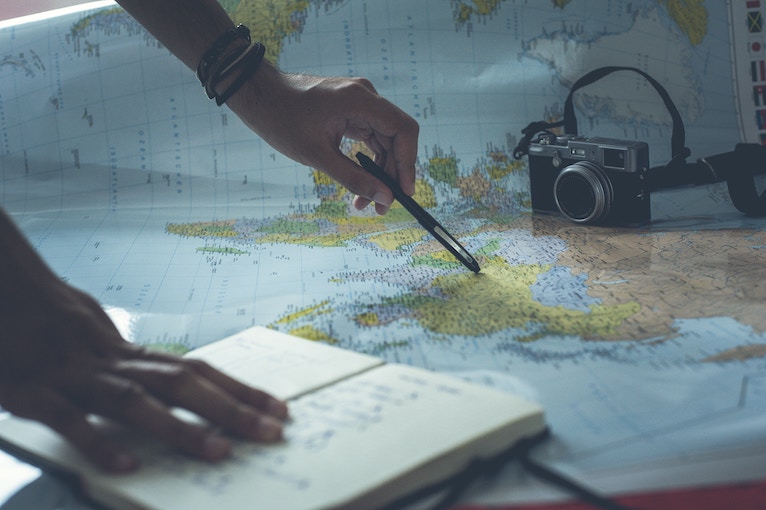
Figuring out how to get from point A to point B is just one skill you’ll learn while traveling abroad.
Improving your problem-solving skills is a big reason why it's important to travel. When you are in a new place, you will have to deal with unexpected situations , and this can help you develop the ability to think on your feet and make quick decisions. You’ll need to be resourceful and make the best out of situations no matter what, and there’s no better way to challenge yourself than by venturing abroad into the unknown!
10. Increased knowledge
Traveling abroad can also increase your general knowledge about the world, which is always a good thing! How many times have you felt secondhand embarrassment from those videos where people can’t seem to point out famous countries on a map? That will never be you when you travel . You will be exposed to different cultures and customs, which will give you a deeper understanding of the world's history, politics, and geography.
11. Networking
You’ll widen the potential to create connections with some of the most interesting people in the world when you travel! You will meet people from all walks of life, and this can be a great way to build professional and personal relationships.
You might meet someone today who will be instrumental in helping you out five or 10 years down the line. With social media, there’s no limit from distance when it comes to friendships and connections, so traveling is a great way to fill up your digital Rolodex with the coolest people ever.
12. Inspiration for future goals
Finding a source of inspiration for your future goals is a major reason why traveling is important. Seeing different places and cultures can help you discover new passions, and this can help you choose new endeavors and set aspirations for your future.
5 important types of travel to try out
1. study abroad.
- Why it’s important: Studying abroad will take your academic experience to the next level. Simply put, studying abroad is a period of time (perhaps a semester or year) during which you pursue your academic interests abroad. This can be done through a program at your own institution or through a separate study abroad organization that works in conjunction with your school or degree program. You may also have the opportunity to study abroad in high school even though most people do it in college!
- Recommended program: TEAN - Australia - Bond University, Gold Coast
- Explore all study abroad programs
2. Volunteer Abroad

Make a difference for people and the planet by volunteering while you travel.
Why it’s important: There's no doubting that as a society, we've moved into a time where the desire to do good for humanity and the planet is more relevant than ever. Volunteering abroad mostly benefits the host community rather than you—remember the point is to make a difference in the country you go to. The work you conduct while on placement will have an influence on your host country for a long time if it is done correctly, ethically, and sustainably, and can be a key reason why travel is important in the grand scheme of things!
- Recommended program: Women’s Empowerment Volunteering in Cambodia
- Explore all volunteer abroad programs
3. Gap Year
- Why it’s important: Searching for the ideal harmony between travel and enlightenment? Then a gap year might be just the thing you need . It will be time well spent, whether it's a year off between high school and college or after graduation, or even a break while you’re employed. Programs for gap years are full of chances for growth on a personal level, acquiring new skills, reevaluating personal and professional objectives, and experiencing once-in-a-lifetime adventures.
- Recommended program: Seamester Study Abroad and Gap Year Voyages
- Explore all gap year programs
4. Intern Abroad
- Why it’s important: As an international intern, you’ll gain real-world experience at a foreign firm or organization while participating in study abroad activities and earning college credit. Interning abroad has several advantages , chief among them the extraordinary personal and professional development that comes with the experience. Internships abroad also provide flexibility. There are hundreds of placements available in dozens of disciplines for international internships, whether you want to change careers, you’re still in college, or you’ve just graduated (or are about to graduate). So, why is it important to travel and intern abroad ? You'll experience life-altering adventures and meet a ton of new people!
- Recommended program: Internships and Volunteer Programs in Africa
- Explore all internship abroad programs
5. Work Abroad
- Why it’s important: Programs that allow you to work overseas are a terrific opportunity to earn more than money. The benefits are nearly endless : a challenging new environment, increased freedom, new friendships (and business connections), the addition of a new language to your toolkit , and the chance to advance your professional aspirations. Your employment overseas won't even seem like work; rather, it'll feel more like one wild—and paid!—adventure because you'll be having so much fun overcoming new obstacles and enjoying new experiences.
- Recommended program: Jobs and internships in Spain
- Explore all work abroad programs
Our Online Advisor can match you with 5 programs abroad—it’s free!
Why travel because you’ll be living your best life, that’s why.

Get out there and learn the importance of travel for yourself!
So in conclusion— why is travel important ? Traveling abroad is not only an exciting and enriching experience, but it also has many benefits for personal growth and development. From enhancing creativity and problem-solving skills to increasing knowledge and networking opportunities to giving you inspiration for future goals, the reasons why traveling is important are numerous.
Travel is an experience that all who have the opportunity to do so should embrace. Now that you know the importance of traveling, you’re ready for an experience you will never forget.
Plan Your Next Trip with our Travel Resources Hub!

Explore Programs on GoAbroad.com
Related Articles

By Cecilia Polanco | 3 days ago

By GoAbroad Writing Team | 3 days ago

By GoAbroad Writing Team | 4 days ago

By Danielle DeSimone | 4 days ago
Popular Searches
Study abroad programs in italy, study abroad programs in spain, marine biology study abroad programs, study psychology abroad, fall study abroad 2024, spring study abroad programs, recommended programs.

2569 reviews
International TEFL Academy

1682 reviews
International Volunteer HQ [IVHQ]

1919 reviews
MAXIMO NIVEL

563 reviews
Intern Abroad HQ
For Travelers
Travel resources, for partners.

© Copyright 1998 - 2024 GoAbroad.com ®
- Study Abroad
- Volunteer Abroad
- Intern Abroad
- Teach Abroad
- TEFL Courses
- Degrees Abroad
- High School Abroad
- Language Schools
- Adventure Travel
- Jobs Abroad
- Online Study Abroad
- Online Volunteer Programs
- Online Internships
- Online Language Courses
- Online Teaching Jobs
- Online Jobs
- Online TEFL Courses
- Online Degree Programs
Cookies on GOV.UK
We use some essential cookies to make this website work.
We’d like to set additional cookies to understand how you use GOV.UK, remember your settings and improve government services.
We also use cookies set by other sites to help us deliver content from their services.
You have accepted additional cookies. You can change your cookie settings at any time.
You have rejected additional cookies. You can change your cookie settings at any time.
- Passports, travel and living abroad
Travel abroad
Includes the latest travel advice by country, your rights at the airport and getting help abroad
Plan your trip
- Foreign travel advice
- Driving abroad
- Drive abroad: step by step
- Get permission to take a child abroad
- Taking a vehicle out of the UK
- Getting married or registering a civil partnership abroad
- Taking your pet dog, cat or ferret abroad
Enter and leave countries
- Hand luggage restrictions at UK airports
- Your rights at the airport
- Take cash in and out of the UK
- Global Entry: apply for faster entry to the USA
While you're abroad
- Help and services around the world
- Claiming benefits if you live, move or travel abroad
- Get your document legalised
- Register a birth abroad
- Get help if you're a victim of crime abroad
- Register a death
Return to the UK
- Bringing goods into the UK for personal use
- Entering the UK
- Bringing food into Great Britain
- Bringing plants and wood into Great Britain
- Bringing your pet dog, cat or ferret to Great Britain
- Bring your pet to Great Britain: step by step
- Importing vehicles into the UK
- Options when customs seizes your things
If you're a victim of crime
- Compensation if you're a victim of crime abroad
- Compensation for victims of terrorist attacks abroad
- Forced marriage
- Female genital mutilation: help and advice
Is this page useful?
- Yes this page is useful
- No this page is not useful
Help us improve GOV.UK
Don’t include personal or financial information like your National Insurance number or credit card details.
To help us improve GOV.UK, we’d like to know more about your visit today. We’ll send you a link to a feedback form. It will take only 2 minutes to fill in. Don’t worry we won’t send you spam or share your email address with anyone.
- Credit cards
- View all credit cards
- Banking guide
- Loans guide
- Insurance guide
- Personal finance
- View all personal finance
- Small business
- Small business guide
- View all taxes
You’re our first priority. Every time.
We believe everyone should be able to make financial decisions with confidence. And while our site doesn’t feature every company or financial product available on the market, we’re proud that the guidance we offer, the information we provide and the tools we create are objective, independent, straightforward — and free.
So how do we make money? Our partners compensate us. This may influence which products we review and write about (and where those products appear on the site), but it in no way affects our recommendations or advice, which are grounded in thousands of hours of research. Our partners cannot pay us to guarantee favorable reviews of their products or services. Here is a list of our partners .
Where Americans Are Traveling in 2024: By the Numbers

Many or all of the products featured here are from our partners who compensate us. This influences which products we write about and where and how the product appears on a page. However, this does not influence our evaluations. Our opinions are our own. Here is a list of our partners and here's how we make money .
Americans are traveling abroad in droves.
The number of U.S. citizens flying to international destinations reached nearly 6.5 million passengers in March, according to the International Trade Administration. That’s the highest March total in over five years and shows that the post-pandemic “revenge travel” trend is the new normal.
It wasn’t just March, which usually sees a spike in international departures for spring break. In every month of 2024 so far, more Americans left the country than last year and 2019. These trends point to a blockbuster summer for overseas travel.
Nearly half of Americans (45%) plan to travel by air and/or stay in a hotel this summer and expect to spend $3,594 on average, on these expenses, according to a survey of 2,000 U.S. adults, conducted online by The Harris Poll and commissioned by NerdWallet.
That's despite rising travel prices that have caused some hesitancy among would-be travelers. About 22% of those choosing not to travel this summer cite inflation making travel too expensive as a reason for staying home, according to the poll.
So where are traveling Americans going? And what does it mean for those looking to avoid crowds of tourists and higher travel prices?
New travel patterns
Nearly every region in the world saw an increase in U.S. visitors in March 2024 compared with March 2023, according to International Trade Administration data. Only the Middle East saw a decline of 9%. Yet not every region saw the same year-over-year bump. U.S. visitors to Asia saw a 33% jump, while Oceania and Central America each saw a 30% increase.
Comparing 2024 with 2023 only tells part of the story, however. The new patterns really emerge when comparing international travel trends to 2019. For example, Central America received 50% more U.S. visitors in March 2024 compared with March 2019. Nearly 1.5 million Americans visited Mexico, up 39% compared with before the pandemic. That’s almost as many visitors as the entire continent of Europe, which has seen a more modest 10% increase since 2019.
Only Canada and Oceania saw fewer visitors in March 2024 than in 2019, suggesting that interest in these locations has not rebounded. Indeed, the trends indicate a kind of tourism inertia from COVID-19 pandemic-era lockdowns: Those destinations that were more open to U.S. visitors during the pandemic, such as Mexico, have remained popular, while those that were closed, such as Australia, have fallen off travelers’ radars.
Price pressures
How these trends play out throughout the rest of the year will depend on a host of factors. Yet, none will likely prove more important than affordability. After months of steadiness, the cost of travel, including airfare, hotels and rental cars, has begun to sneak up again.
About 45% of U.S. travelers say cost is their main consideration when planning their summer vacation, according to a survey of 2,000 Americans by the travel booking platform Skyscanner.
That’s likely to weigh further on U.S. travelers’ appetite for visiting expensive destinations such as Europe, while encouraging travel to budget-friendly countries. It could also depress overall international travel as well, yet so far, Americans seem to be traveling more.
For those looking to avoid crowds while maintaining a budget, Skyscanner travel trends expert Laura Lindsay offered a recommendation many of us might need help finding on a map.
“Albania has been on the radar of travelers looking for something different,” Lindsay said. "Most people have yet to discover it, but flights and tourism infrastructure are in place, and there are fewer crowds in comparison to trending European destinations like Italy, Greece, or Portugal.”
On the flip side, American travelers looking to avoid crowds of compatriots would do well to avoid Japan, which has seen a staggering 50% increase in U.S. tourists between March 2019 and 2024.
How to maximize your rewards
You want a travel credit card that prioritizes what’s important to you. Here are our picks for the best travel credit cards of 2024 , including those best for:
Flexibility, point transfers and a large bonus: Chase Sapphire Preferred® Card
No annual fee: Bank of America® Travel Rewards credit card
Flat-rate travel rewards: Capital One Venture Rewards Credit Card
Bonus travel rewards and high-end perks: Chase Sapphire Reserve®
Luxury perks: The Platinum Card® from American Express
Business travelers: Ink Business Preferred® Credit Card
On a similar note...

Numbers, Facts and Trends Shaping Your World
Read our research on:
Full Topic List
Regions & Countries
- Publications
- Our Methods
- Short Reads
- Tools & Resources
Read Our Research On:
Americans who have traveled internationally stand out in their views and knowledge of foreign affairs
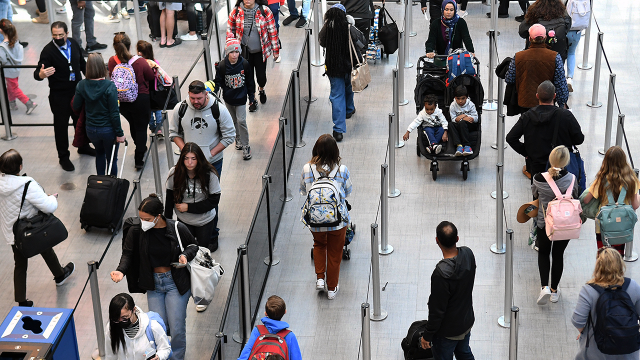
Do people who travel think differently about the world? A new Pew Research Center survey suggests they do.
Americans who have traveled internationally are more interested in and knowledgeable about foreign affairs, feel closer to others around the world, and favor a more active foreign policy, according to the survey of 3,576 U.S. adults conducted in spring 2023. We also surveyed people in 23 other countries about their international travel habits.
This analysis examines international travel with a focus on Americans’ travel, including which Americans travel abroad and how their interest in the world and views of international affairs differ from others.
For this analysis, we surveyed 3,576 U.S. adults from March 20 to March 26, 2023; 3,581 U.S. adults from March 21 to March 27, 2022; and 10,606 U.S. adults from June 14 to June 27, 2021. Everyone who took part in these surveys is a member of the Center’s American Trends Panel (ATP), an online survey panel that is recruited through national, random sampling of residential addresses. This way nearly all U.S. adults have a chance of selection. The survey is weighted to be representative of the U.S. adult population by gender, race, ethnicity, partisan affiliation, education and other categories. Read more about the ATP’s methodology .
For non-U.S. data, this report draws on nationally representative surveys of 27,285 adults conducted from Feb. 20 to May 22, 2023. All surveys were conducted over the phone with adults in Canada, France, Germany, Greece, Italy, Japan, the Netherlands, South Korea, Spain, Sweden and the United Kingdom. Surveys were conducted face-to-face in Hungary, Poland, India, Indonesia, Israel, Kenya, Nigeria, South Africa, Argentina, Brazil and Mexico. In Australia, we used a mixed-mode probability-based online panel.
Here are the June 2021 survey questions and responses used in this analysis. Those for the March 2022 survey may be found here , as well as those for the March 2023 survey .
How many Americans have traveled internationally?
Roughly three-quarters of Americans (76%) have visited at least one other country, including 26% who have been to five or more. About a quarter (23%) have not traveled internationally, though most in this group say they would if they had the opportunity.
Related: How experience with international travel varies across 24 countries
To analyze how Americans’ travel experiences relate to their attitudes on other questions, we placed people into three categories:
- Globe-trotters have traveled to at least five other countries. About a quarter of the U.S. public (26%) falls into this category.
- Casual travelers have traveled to between one and four other countries. Half of Americans fall into this category.
- Nontravelers have never left the United States. This category includes 23% of Americans.
Compared with Americans, people in many European nations are more likely to have traveled to five or more other countries. For instance, 88% of Swedes have done so.
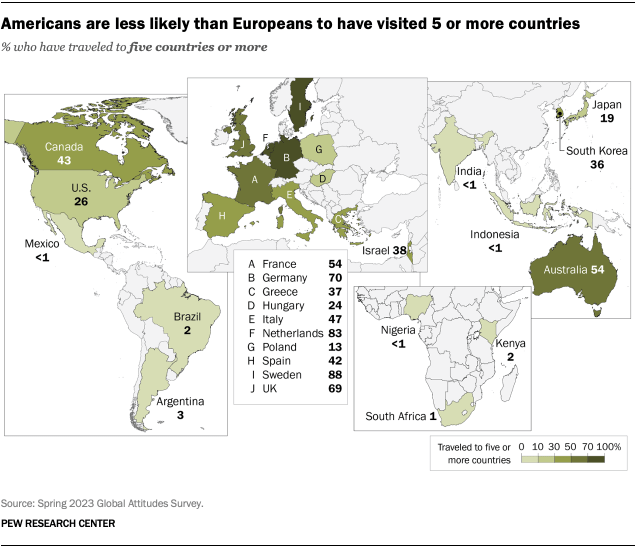
However, international travel is much less common in many middle-income nations. It is strongly correlated with a nation’s gross domestic product per capita. (For more on international travel and views about global engagement, read “Attitudes on an Interconnected World.” )
Who travels internationally?

Perhaps unsurprisingly, older people are more likely than younger people to have traveled internationally. Americans ages 65 and older are more than twice as likely as adults under 30 to fall into our globe-trotter category (37% vs. 17%).
Income is even more strongly related to travel than age. Two-thirds of upper-income Americans have traveled to at least five countries, compared with 9% of Americans with lower incomes.
Similarly, Americans with a postgraduate degree are far more likely to be globe-trotters than those with a high school education or less (59% vs. 10%).
Residents of suburban and urban areas generally have more international travel experience than people who live in rural areas.
There are no significant partisan differences when it comes to international travel: 26% of Democrats and Democratic-leaning independents qualify as globe-trotters, as do 28% of Republicans and GOP leaners.
Do travelers know more about the world?
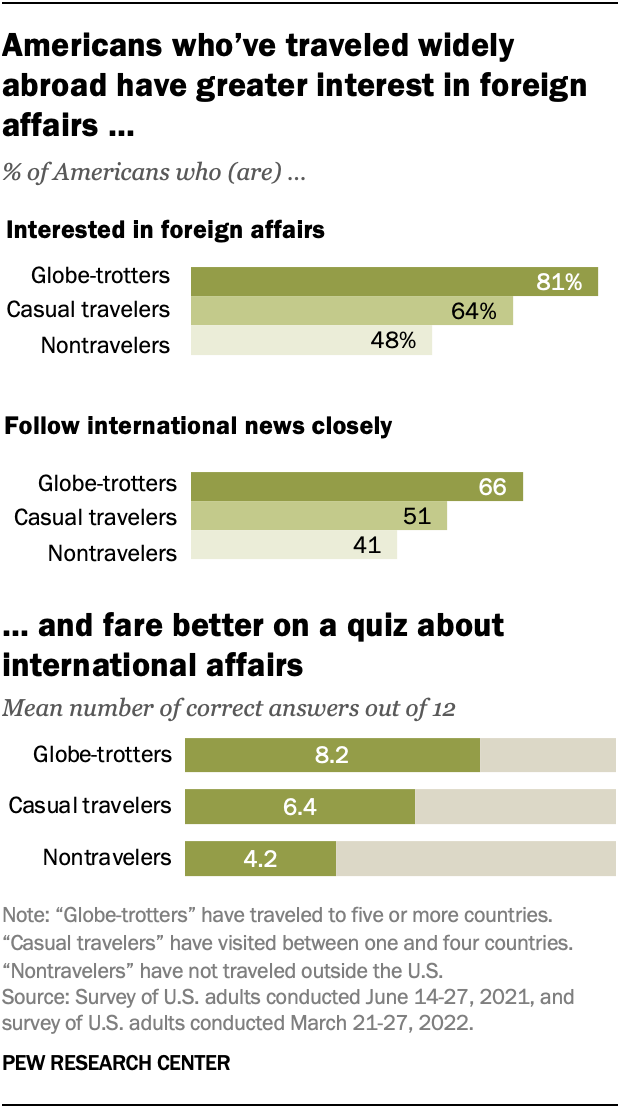
Globe-trotters are especially likely to say they are interested in foreign affairs and follow international news. Casual travelers, in turn, are more likely than nontravelers to do so.
Globe-trotters are also the most knowledgeable about international affairs. In 2022, we conducted an international affairs quiz , asking Americans 12 questions related to international news. On average, globe-trotters got 8.2 of the 12 questions correct, compared with 6.4 for casual travelers and 4.2 for nontravelers.
Is international travel related to views of global engagement?

International travel experience is also linked to Americans’ views about international affairs and their feelings of connection to other people around the world.
When asked which comes closest to their view, 57% of globe-trotters say the U.S. should be active in world affairs, while 43% say the U.S. should pay less attention to problems in other countries and concentrate on problems at home. In contrast, most casual travelers and nontravelers say the U.S. should focus on problems at home.
In all three groups, at least half of respondents say that when the U.S. is making foreign policy, it should take other countries’ interests into account – even if that means making compromises. But globe-trotters are especially likely to hold that view.
Globe-trotters are also particularly likely to say they feel close to people around the world, with 42% saying so. By comparison, 34% of casual travelers and 30% of nontravelers say this.
- International Affairs

Richard Wike is director of global attitudes research at Pew Research Center .

Janell Fetterolf is a senior researcher focusing on global attitudes at Pew Research Center .
Americans Remain Critical of China
As biden and trump seek reelection, who are the oldest – and youngest – current world leaders, a growing share of americans have little or no confidence in netanyahu, fewer americans view the united nations favorably than in 2023, what are americans’ top foreign policy priorities, most popular.
1615 L St. NW, Suite 800 Washington, DC 20036 USA (+1) 202-419-4300 | Main (+1) 202-857-8562 | Fax (+1) 202-419-4372 | Media Inquiries
Research Topics
- Age & Generations
- Coronavirus (COVID-19)
- Economy & Work
- Family & Relationships
- Gender & LGBTQ
- Immigration & Migration
- Internet & Technology
- Methodological Research
- News Habits & Media
- Non-U.S. Governments
- Other Topics
- Politics & Policy
- Race & Ethnicity
- Email Newsletters
ABOUT PEW RESEARCH CENTER Pew Research Center is a nonpartisan fact tank that informs the public about the issues, attitudes and trends shaping the world. It conducts public opinion polling, demographic research, media content analysis and other empirical social science research. Pew Research Center does not take policy positions. It is a subsidiary of The Pew Charitable Trusts .
Copyright 2024 Pew Research Center
Terms & Conditions
Privacy Policy
Cookie Settings
Reprints, Permissions & Use Policy
Official websites use .gov A .gov website belongs to an official government organization in the United States.
Secure .gov websites use HTTPS A lock ( A locked padlock ) or https:// means you've safely connected to the .gov website. Share sensitive information only on official, secure websites.
- Create Account
International Travel as a Permanent Resident
In general, you will need to present a passport from your country of citizenship or your refugee travel document to travel to a foreign country. In addition, the foreign country may have additional entry/exit requirements (such as a visa). For information on foreign entry and exit requirements, see the Department of State’s website .
If seeking to enter the United States after temporary travel abroad, you will need to present a valid, unexpired “Green Card” (Form I-551, Permanent Resident Card). When arriving at a port of entry, a U.S. Customs and Border Protection Officer will review your permanent resident card and any other identity documents you present, such as a passport, foreign national I.D. card or U.S. Driver’s License, and determine if you can enter the United States. For information pertaining to entry into the United States, see U.S. Customs and Border Protection’s webpage .
Permanent residents are free to travel outside the United States, and temporary or brief travel usually does not affect your permanent resident status. If it is determined, however, that you did not intend to make the United States your permanent home, you will be found to have abandoned your permanent resident status. A general guide used is whether you have been absent from the United States for more than a year. Abandonment may be found to occur in trips of less than a year where it is believed you did not intend to make the United States your permanent residence. While brief trips abroad generally are not problematic, the officer may consider criteria such as whether your intention was to visit abroad only temporarily, whether you maintained U.S. family and community ties, maintained U.S employment, filed U.S. income taxes as a resident, or otherwise established your intention to return to the United States as your permanent home. Other factors that may be considered include whether you maintained a U.S. mailing address, kept U.S. bank accounts and a valid U.S. driver’s license, own property or run a business in the United States, or any other evidence that supports the temporary nature of your absence.
If you plan on being absent from the United States for longer than a year, it is advisable to first apply for a reentry permit on Form I-131 . Obtaining a reentry permit prior to leaving the United States allows a permanent or conditional permanent resident to apply for admission into the United States during the permit’s validity without the need to obtain a returning resident visa from a U.S. Embassy or Consulate abroad. Please note that it does not guarantee entry into the United States upon your return as you must first be determined to be admissible; however, it will assist you in establishing your intention to permanently reside in the United States. For more information, see the Travel Documents page.
If you remain outside of the United States for more than 2 years, any reentry permit granted before your departure from the United States will have expired. In this case, it is advisable to consider applying for a returning resident visa (SB-1) at the nearest U.S. Embassy or Consulate. An SB-1 applicant will be required to establish eligibility for an immigrant visa and will need a medical exam. There is an exception to this process for the spouse or child of either a member of the U.S. Armed Forces or civilian employee of the U.S. Government stationed abroad on official orders. For more information on obtaining a returning resident visa, see the Department of State’s webpage on returning resident visas .
Additionally, absences from the United States of six months or more may disrupt the continuous residency required for naturalization. If your absence is one year or longer and you wish to preserve your continuous residency in the United States for naturalization purposes, you may file an Application to Preserve Residence for Naturalization Purposes on Form N-470. For more information, please see the Continuous Residence and Physical Presence Requirements page.
If you lose your Green Card or reentry permit or it is stolen or destroyed while you are abroad, you may need to file a Form I-131A, Application for Travel Document (Carrier Documentation) . This carrier documentation will allow an airline or other transportation carrier to board a lawful permanent resident bound for the United States without the carrier being penalized. For more information, please see the Form I-131A, Application for Travel Document (Carrier Documentation) page.
More Information
- Welcome to the United States: A Guide for New Immigrants (PDF, 3.57 MB)
- How Do I Get a Reentry Permit? (PDF, 667.32 KB)
- I-131, Application for Travel Document
- I-90, Application to Replace Permanent Resident Card
Other USCIS Links
- Green Card Resources
- How Do I Help My Relative Become a Lawful Permanent Resident? (PDF, 577.38 KB)
- How Do I Renew or Replace My Permanent Resident Card? (PDF, 550.19 KB)
- "How Do I" Guides for Permanent Residents
Conversation Questions Travel
- Skip to main content
- Skip to site information
Language selection
Help us to improve our website. Take our survey !
Travel outside Canada
It is important to be prepared and to expect the unexpected wherever in the world you may be. Here is helpful information on health and safety, travel documents, Canada-U.S border wait times, travelling with children and more.
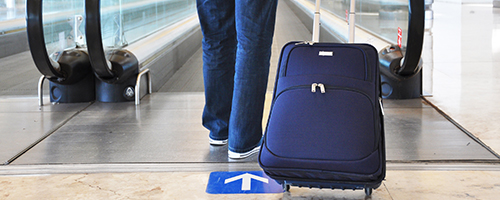
Measles cases are increasing worldwide
Before travelling, check that you and your family have received the recommended measles vaccinations.
Do not travel if you have symptoms of measles or have been in contact with someone with measles.
If you develop symptoms of measles after your return to Canada, call a health care provider right away.
Global Measles Notice
Services and information
Travel advice and advisories.
Official Government of Canada travel information
Travel Advice and Advisories archives
Government of Canada’s Travel Advice and Advisories archives from November 16, 2012 to the present
Health and safety outside Canada
Essential information on travel health and safety risks and how to prevent them
Travel documents
Passports, visas, international driving permits and other documents you will need when you travel abroad
Types of travellers
Find travel information specific to dual citizens, women, older people, 2SLGBTQI+ people and other types of travellers
Canada to U.S. border wait times
Regularly updated list of wait times at border crossing points for drivers going to the U.S. from Canada
- Registration of Canadians Abroad
Sign up with the Registration of Canadians Abroad service to stay connected to Canada in case of an emergency abroad or an emergency at home
Children and travel
Everything you need to know to travel safely with children abroad
Living abroad
Be informed and prepared for the benefits and challenges of working, studying, retiring, volunteering or travelling on business abroad before you leave Canada
Resources for educators, students and travel counsellors
Online training and web-based resources for educators, students and travel counsellors
Publications
Ordering and reading our wide range of publications is a good first step to a safe and healthy trip abroad
Cannabis and international travel
Understand and avoid the risks related to cannabis and international travel
Travelling and money
Information about using cash, credit cards and debit cards abroad, taxation and travelling with $10,000 or more
Schengen Area
Important information for travellers to Europe
What we are doing
Policies, acts and regulations.
- Citizenship Act
- Canadian Air Transport Security Authority Act
- Department of Foreign Affairs, Trade and Development Act
- Public Health Agency of Canada Act
- Bon voyage, but... Essential information for Canadian travellers
- Travelling with children
- Well on Your Way - A Canadian's Guide to Healthy Travel Abroad
All related publications
- CATSA claims forms
- Recommended consent letter for children travelling abroad

Before travelling, check that you and your family have received the recommended measles vaccinations and know what symptoms to look out for.
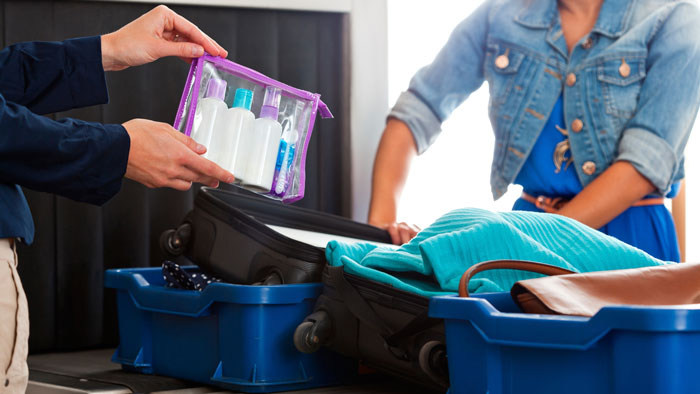
A quick searchable guide to what you can and cannot bring on a plane.

A free service provided by Global Affairs Canada that keeps you connected to Canada in case of an emergency abroad or at home.

StarsInsider
30 things to avoid when you travel abroad
Posted: May 29, 2023 | Last updated: July 28, 2023

You may also like:

Speaking the language
Follow us and access great exclusive content every day

Assuming everybody speaks English
You may also like: Danger Will Robinson! Le attrazioni turistiche più pericolose al mondo

Local culture

Disrespecting local culture
You may also like: Sea monsters and other weird and wonderful animals you've never heard of

Offending the locals

Offensive gestures
You may also like: Anti-acne diet: foods you should eat and avoid to reduce skin problems

Don't make fun of the local language
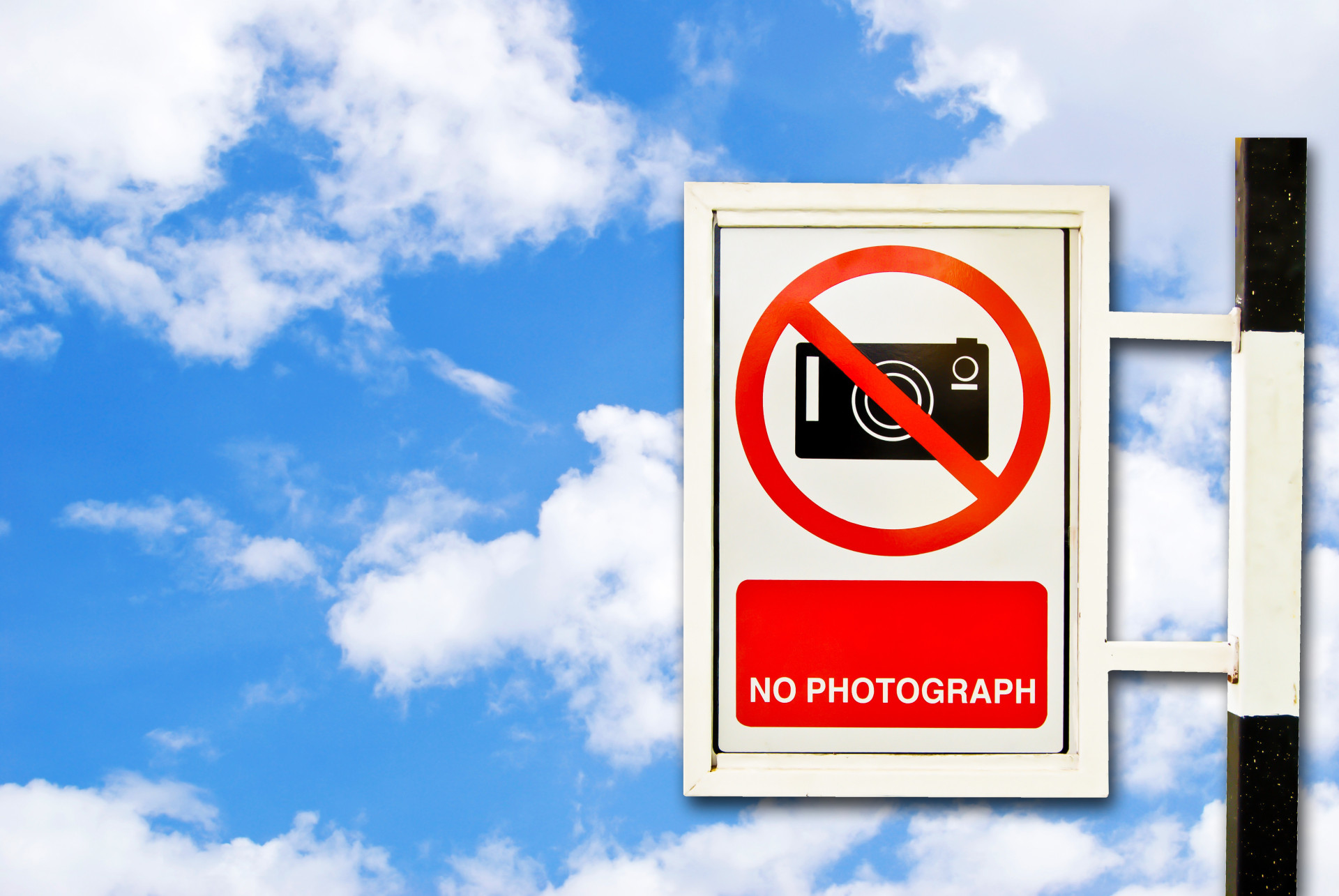
Taking photos in forbidden areas
You may also like: These foods will make you look younger

Taking photos in holy places

Taking photos without permission
You may also like: What a Ball: Cool facts about 'I Love Lucy'
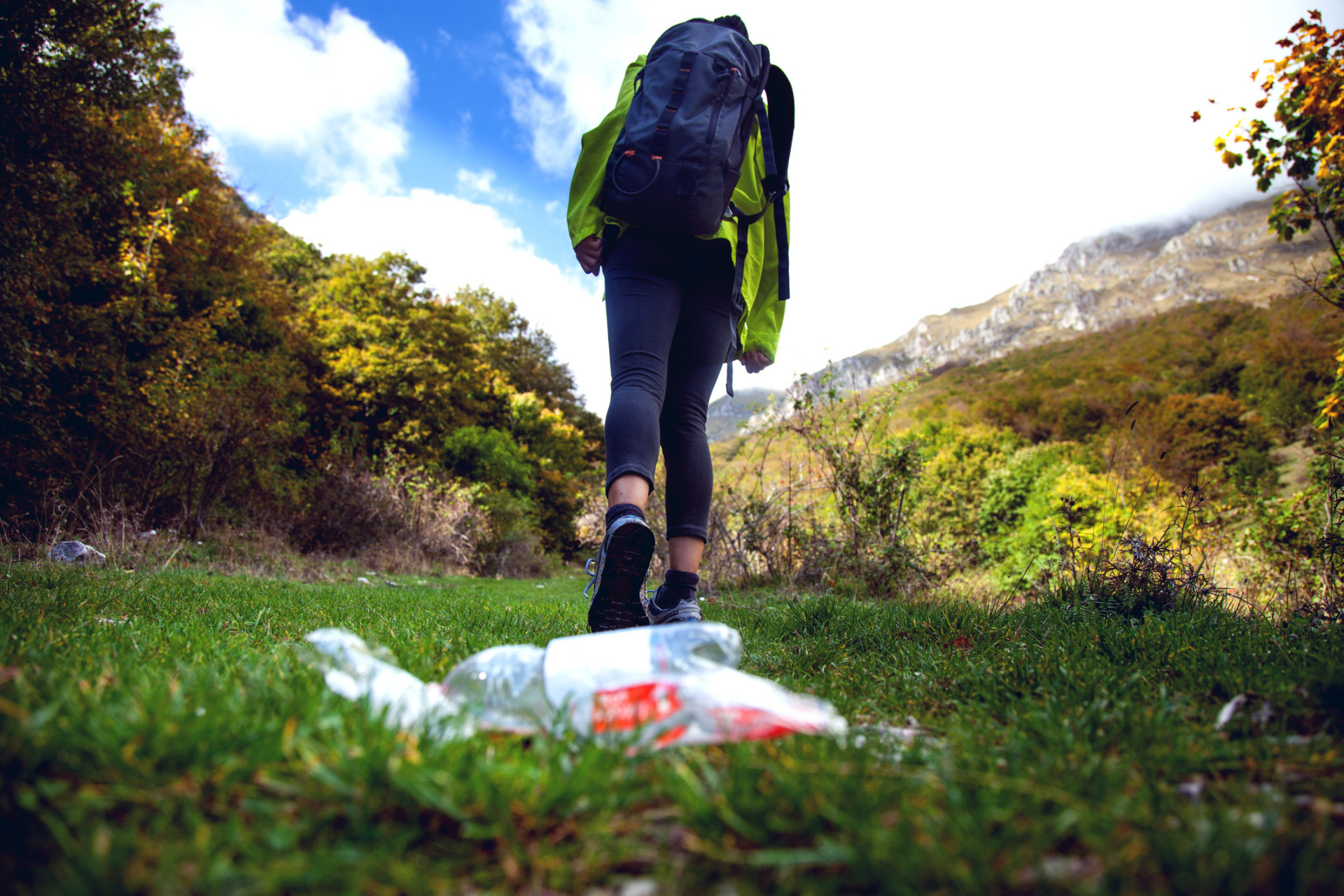
Currency exchange at the airport
You may also like: A guide to staying fit and healthy as you get older

Not getting travel insurance
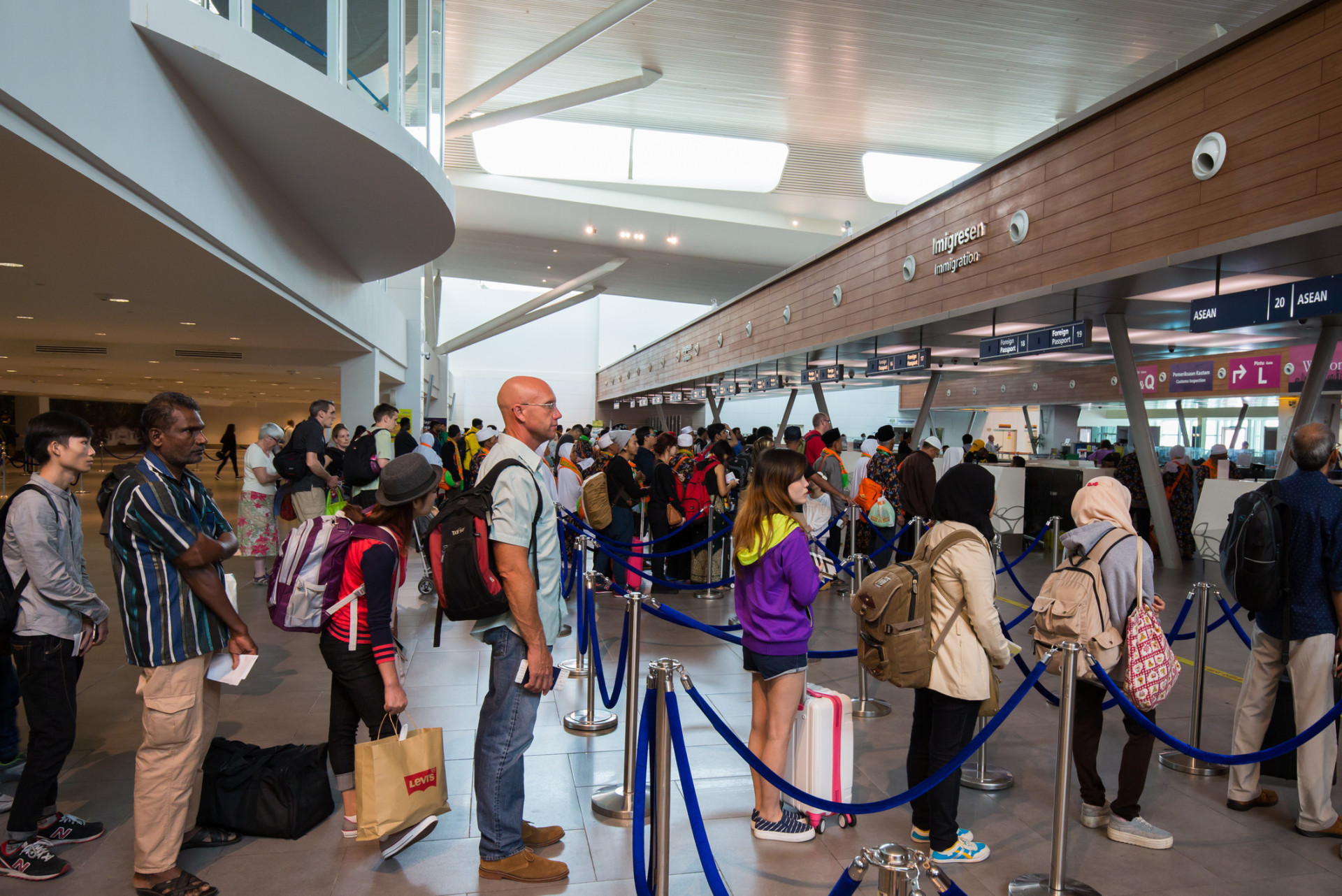
You may also like: These breeds make the best family dogs
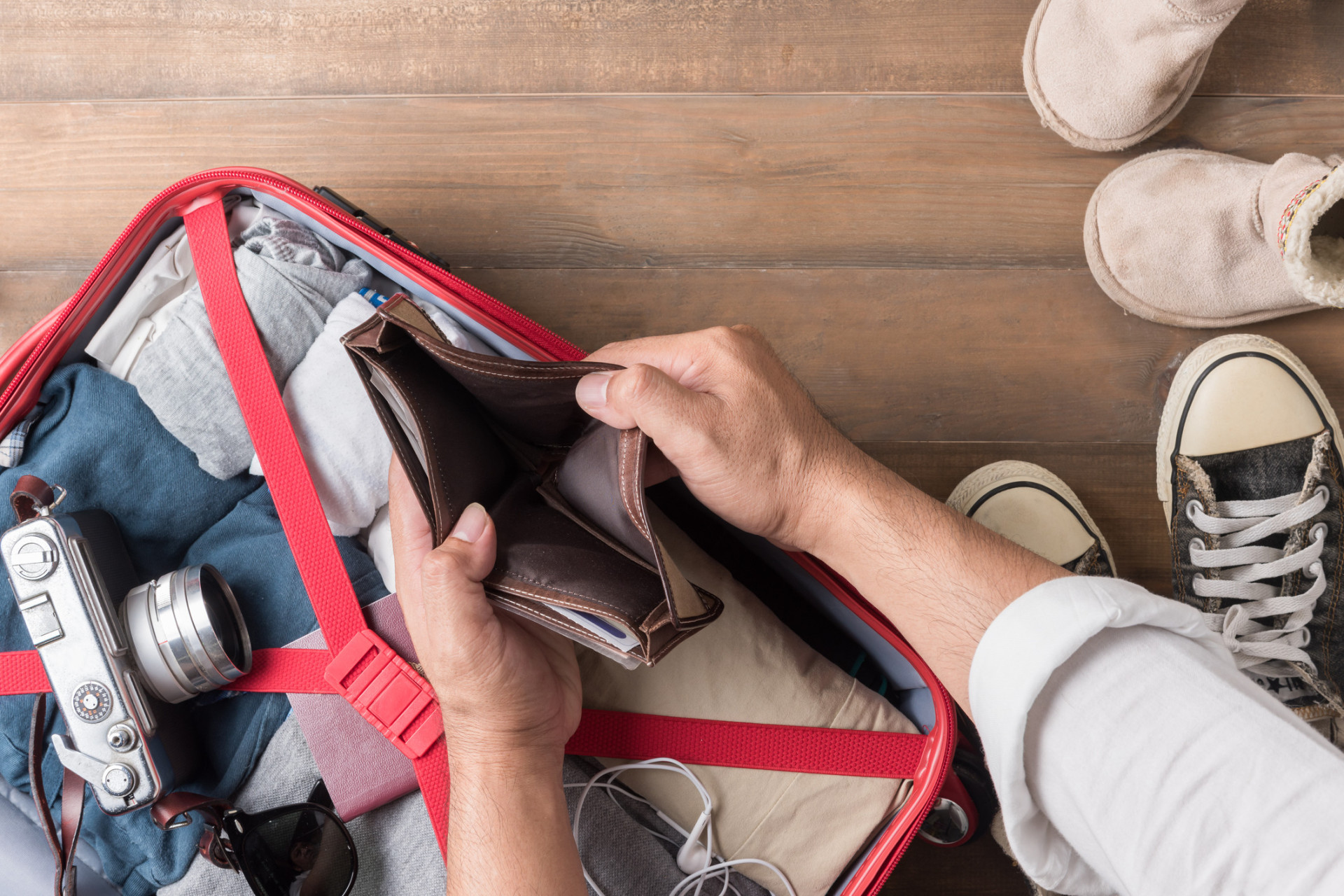
Emergency money

Not tipping
You may also like: The deadliest places in the world

Smoking where it's prohibited
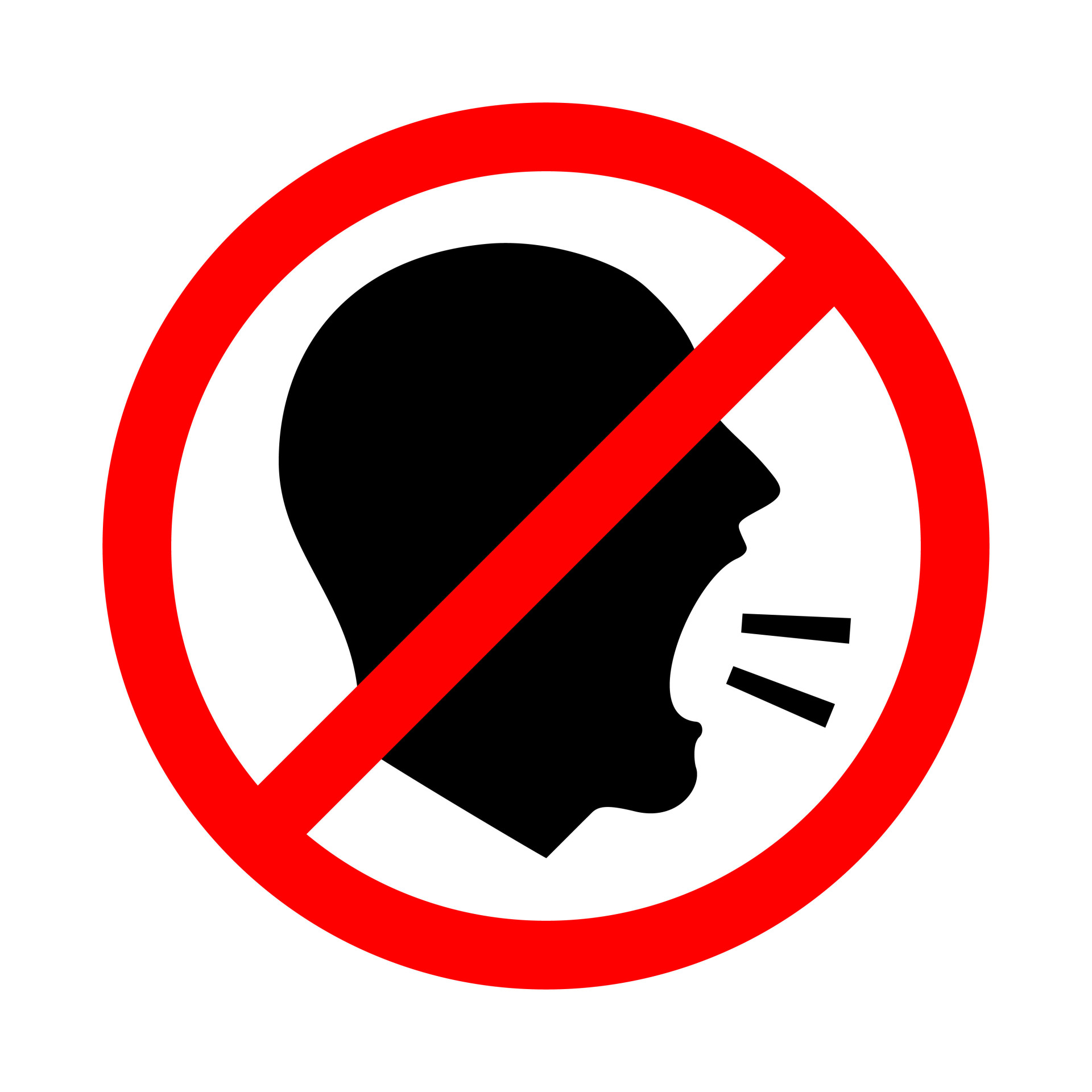
Not respecting the silence
You may also like: Reclusive celebs who live a private life

Keeping an eye on your stuff

Bringing just one credit card
You may also like: Vibrant blue animals you can’t take your eyes off
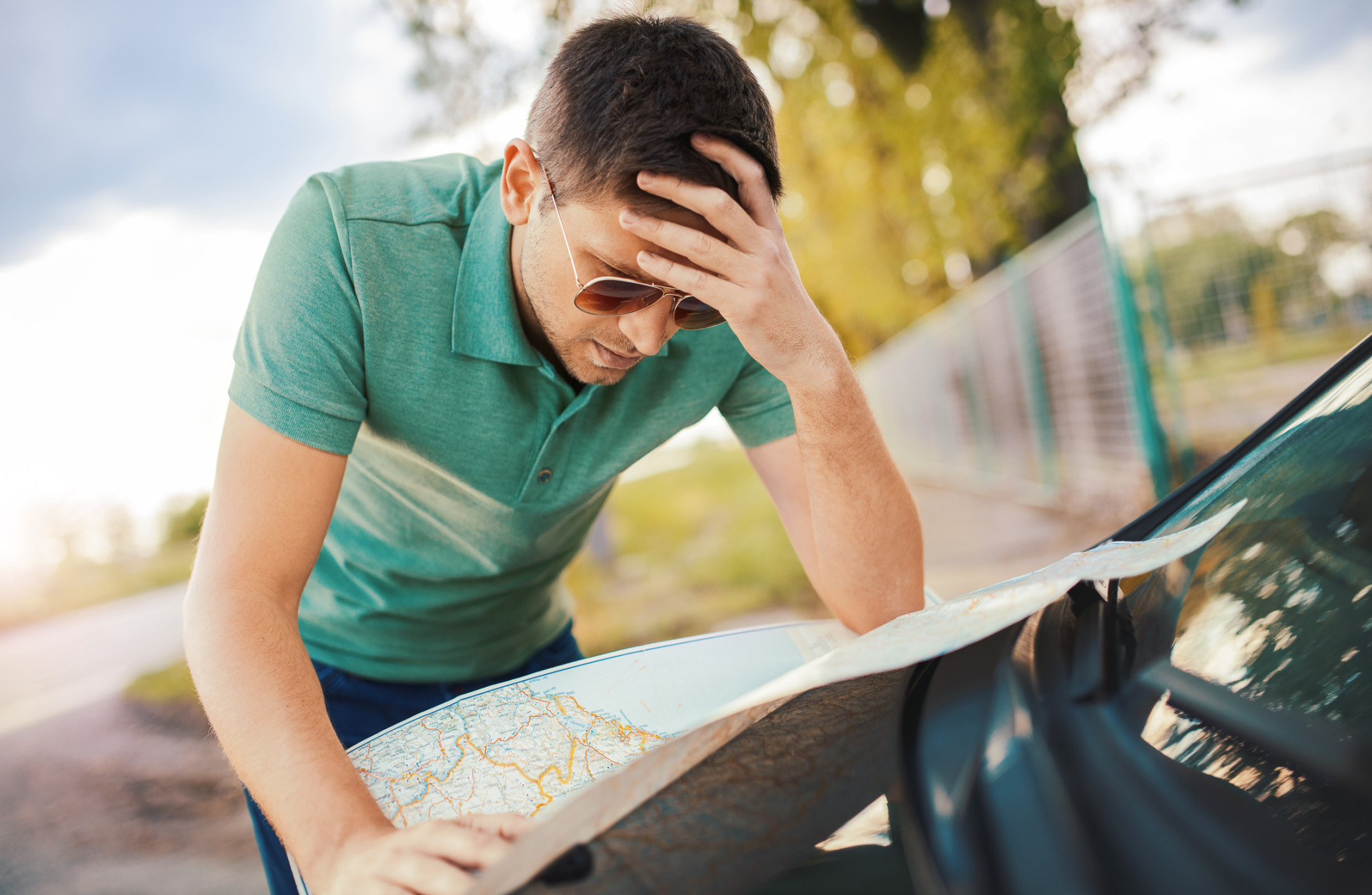
Not knowing how to get home

Going down dangerous streets
You may also like: Famous scenes you didn't know were improvised

Not respecting the rules of the road

Eating and drinking on public transport
You may also like: Stars out of water: Celebs who can't swim

Drinking alcohol in some places

Chewing gum
You may also like: Actors who hated their on-screen character
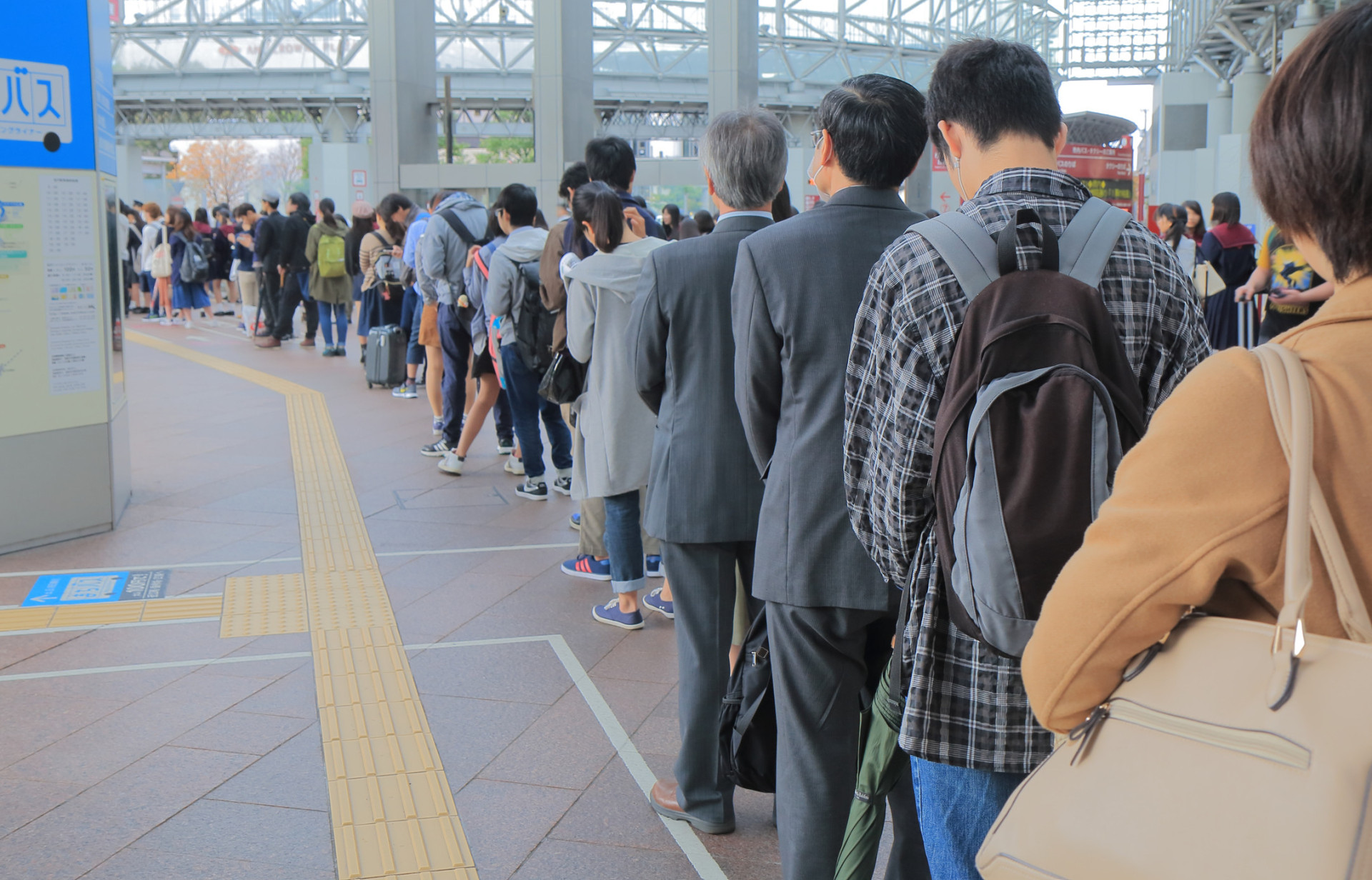
Skipping the queue
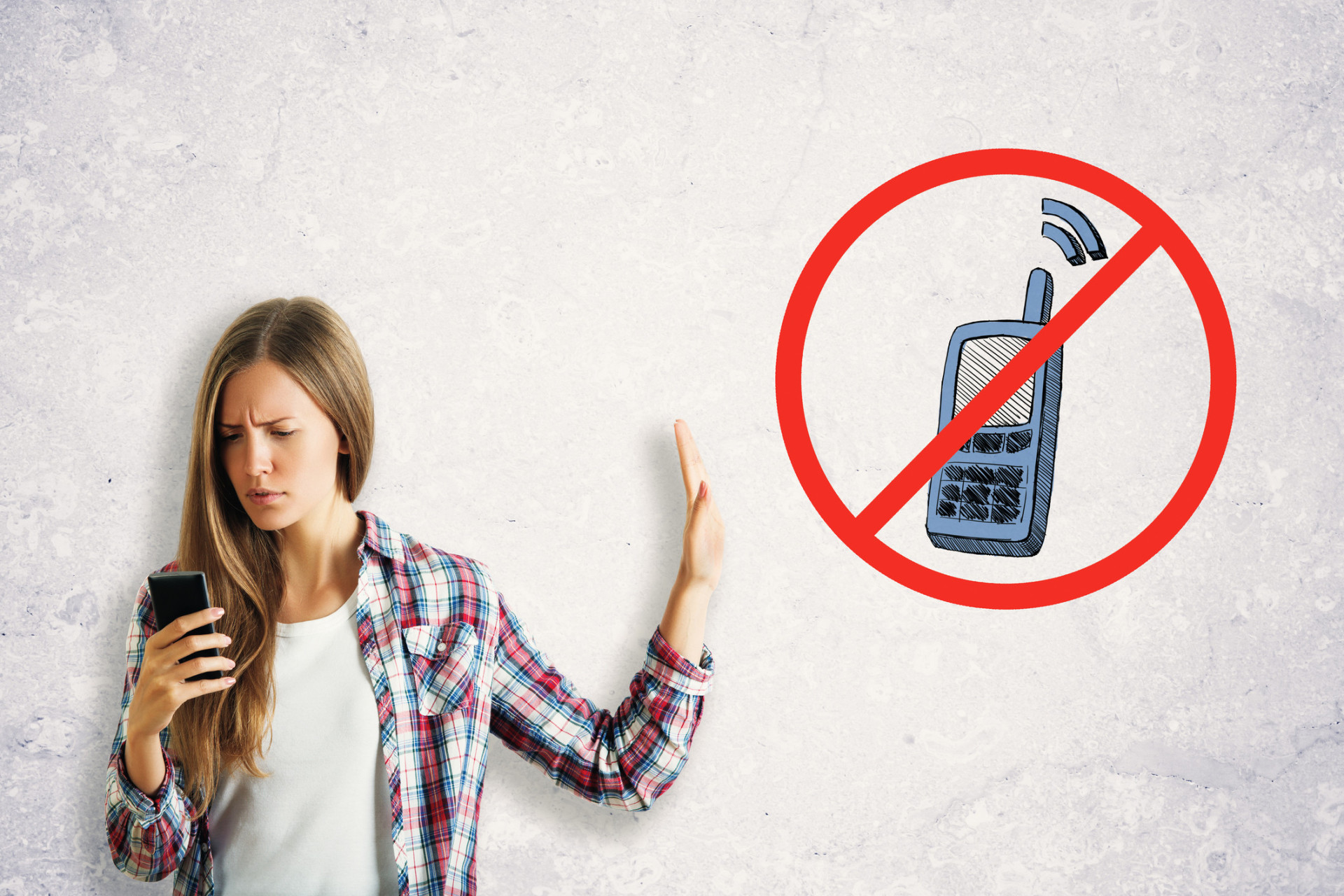
Speaking on the phone
You may also like: Famous artists who have been accused of plagiarism

Not warning anybody
It's always a good idea to let somebody know you're traveling. Something unexpected might happen, both at home or abroad. Let your family or close friends know where you're off to, and when you expect to be back.
See also: Discovering the ancient city-state called Sparta
You may also like: The biggest engineering mistakes of all time
More for You
Alvin Bragg Comes Up Against 'The Biggest Problem' in Trump Case
Here’s What the US Minimum Wage Was the Year You Were Born
Peloton, the fallen fitness unicorn, faces a harsh truth despite its shiny new deal with Hyatt hotels: ‘I don’t think they thought [about] what was going to happen post-pandemic’
iPhone users in 92 countries received a recent stark warning
Map reveals best places to live in the US if nuclear war breaks out
This humanoid robot currently holds the world record for speed
Garfield by Jim Davis
Employers Are Avoiding Hiring Gen Z Workers- Here's Why
‘We got it wrong:’ WeightWatchers CEO on weight loss
Here's How Often You Should Wash Your Hair, According to Experts
NBA legend Michael Jordan adds “his closest friends” Derek Jeter and Serena Williams to tequila brand as it prepares global expansion
Livvy Dunne somersaults her way to Passes platform with multi-million dollar deal
Peanuts by Charles Schulz
Google lays off hundreds of 'Core' employees, moves some positions to India and Mexico
Joe Biden's Approval Rating Falls To All-Time Low
'Fighting for our lives': Tesla driver in LA says his car 'dies every day' and he's 'over it' — why the current state of EVs is pushing consumers over the edge
A third of Americans could have had data stolen in big health care hack
Jeff Bezos’s Homes: Inside His More Than $500 Million Property Portfolio
New photos show the US Army's latest version of the Bradley fighting vehicle that's proven itself in Ukraine
At 43, I’ve finally learned how to love my size 16 curves
- Share full article
Advertisement
Supported by
Automatic Refunds and No More Hidden Fees: D.O.T. Sets New Rules for Airlines
The Transportation Department issued new requirements on refunds when flights are canceled or delayed and on revealing “junk” fees before booking. Here’s what passengers can expect.

By Christine Chung
The Transportation Department on Wednesday announced new rules taking aim at two of the most difficult and annoying issues in air travel: obtaining refunds and encountering surprise fees late in the booking process.
“Passengers deserve to know upfront what costs they are facing and should get their money back when an airline owes them — without having to ask,” said U.S. Transportation Secretary Pete Buttigieg in a statement, adding that the changes would not only save passengers “time and money,” but also prevent headaches.
The department’s new rules, Mr. Buttigieg said, will hold airlines to clear and consistent standards when they cancel, delay or substantially change flights, and require automatic refunds to be issued within weeks. They will also require them to reveal all fees before a ticket is purchased.
Airlines for America , a trade group representing the country’s largest air carriers, said in a statement that its airlines “abide by and frequently exceed” D.O.T. consumer protection regulations.
Passenger advocates welcomed the new steps.
Tomasz Pawliszyn, the chief executive of AirHelp, a Berlin-based company that assists passengers with airline claims, called it a “massive step forward and huge improvement in consumer rights and protection” that brings the United States closer to global standards in passenger rights.
Here’s what we know about the D.O.T.’s new rules, which will begin to go into effect in October.
There’s now one definition for a “significant” delay.
Until now, airlines have been allowed to set their own definition for a “significant” delay and compensation has varied by carrier . Now, according to the D.O.T., there will be one standard: when departure or arrival is delayed by three hours for domestic flights and six hours for international flights.
Passengers will get prompt refunds for cancellations or significant changes for flights and delayed bags, for any reason.
When things go wrong, getting compensation from an airline has often required establishing a cumbersome paper trail or spending untold hours on the phone. Under the new rules, refunds will be automatic, without passengers having to request them. Refunds will be made in full, excepting the value of any transportation already used. Airlines and ticket agents must provide refunds in the original form of payment, whether by cash, credit card or airline miles. Refunds are due within seven days for credit card purchases and within 20 days for other payments.
Passengers with other flight disruptions, such as being downgraded to a lower service class, are also entitled to refunds.
The list of significant changes for which passengers can get their money back also includes: departure or arrival from an airport different from the one booked; connections at different airports or flights on planes that are less accessible to a person with a disability; an increase in the number of scheduled connections. Also, passengers who pay for services like Wi-Fi or seat selection that are then unavailable will be refunded any fees.
Airlines must give travel vouchers or credits to ticketed passengers unable to fly because of government restrictions or a doctor’s orders.
The vouchers or credits will be transferable and can be used for at least five years after the date they were issued.
Fees for checked baggage and modifying a reservation must be disclosed upfront.
Airlines and ticket agents are now required to display any extra fees for things like checking bags or seat selection clearly and individually before a ticket purchase. They will also need to outline the airline’s policies on baggage, cancellations and changing flights before a customer purchases a ticket.
The rules, which apply to all flights on domestic airlines and flights to and from the United States operated by foreign airlines, have varying start dates.
For example, automatic refunds must be instituted by the airlines within six months. But carriers have a year before they’re required to issue travel vouchers and credits for passengers advised by a medical professional not to fly.
Follow New York Times Travel on Instagram and sign up for our weekly Travel Dispatch newsletter to get expert tips on traveling smarter and inspiration for your next vacation. Dreaming up a future getaway or just armchair traveling? Check out our 52 Places to Go in 2024 .
Christine Chung is a Times reporter covering airlines and consumer travel. More about Christine Chung
Open Up Your World
Considering a trip, or just some armchair traveling here are some ideas..
52 Places: Why do we travel? For food, culture, adventure, natural beauty? Our 2024 list has all those elements, and more .
Mumbai: Spend 36 hours in this fast-changing Indian city by exploring ancient caves, catching a concert in a former textile mill and feasting on mangoes.
Kyoto: The Japanese city’s dry gardens offer spots for quiet contemplation in an increasingly overtouristed destination.
Iceland: The country markets itself as a destination to see the northern lights. But they can be elusive, as one writer recently found .
Texas: Canoeing the Rio Grande near Big Bend National Park can be magical. But as the river dries, it’s getting harder to find where a boat will actually float .

IMAGES
COMMENTS
Preparing for a Trip Abroad Advisories: As a first step in planning any trip abroad, check the Travel Advisories for your intended destination. International Financial Scams: U.S. citizens can become victims of scams at home or abroad. Smart Traveler Enrollment Program (STEP): Subscribe to get up-to-date safety and security information and help us reach you […]
Authenticate an official document for use outside the U.S. Apostilles and authentication certificates show U.S. documents are genuine. Learn when to use each. Make traveling abroad easier: learn about visas, Trusted Traveler Programs, driving, and emergencies. Also, learn to authenticate documents with apostilles.
Here are 10 good answers to this question about traveling abroad. See if you can borrow a few ideas for your own answer. 'Yes, I Have' Answers. 1. Yes, I have. I've traveled abroad three or four times. I went to Bulgaria last year on vacation with my family. We had a great time.
While Egypt, Jordan and many Caribbean nations require proof of health insurance, travelers to Chile, in addition to proof of vaccination and a negative test, must also show "proof of travel ...
U.S. citizens going abroad, check with the Department of State for travel advisories. COVID-19 testing and vaccine rules for entering the U.S. As of May 12, 2023, noncitizen nonimmigrant visitors to the U.S. arriving by air or arriving by land or sea no longer need to show proof of being fully vaccinated against COVID-19.
So if you're itching to travel abroad or have already booked a trip, you probably have a lot of questions. Here are some guidelines that might help you deal with the new rules of international flight:
If you are a U.S. citizen planning to travel abroad, you may need a visa to enter a foreign country. Learn how to find your destination's visa requirements. While not all countries require visas for American travelers, many do. Look up your destination using the U.S. State Department's Learn About Your Destination search tool.
Start with this international travel checklist of items to pack: Passport and visa. Medications. Insurance and ID cards. Cash, debit cards, and credit cards. Pen to fill out customs forms ...
Find out if you need to get a visa. United States citizens don't need a U.S. visa for travel, but when planning travel abroad may need a visa issued by the embassy of the country they wish to visit. If you have a visa, we recommend you make a copy and put it in a separate place. Carry your visa with you — do not pack it in your checked luggage.
Follow these simple tips of things to do before traveling internationally to ensure smooth sailing. 1. Prepare your travel documents. The most important tip to avoid unnecessary stress is to apply for your passport well in advance. Without your passport or a travel visa, your potential travel radius is limited significantly.
Apply for a Passport. First things first. In order to travel internationally, you'll need to have a valid, unexpired passport. On top of that, many countries require you to also have at least three or even six months validity left on your passport from your date of travel. So, if you don't have a valid, unexpired passport or your passport ...
5. Get insured. Whether it's health security, baggage protection, or travel insurance, make sure that you are covered while abroad. If you are traveling with an organized program, these usually offer you the option of buying an insurance package; if you do not have your own international coverage, these are great options.
Foreign travel advice. Get advice about travelling abroad, including the latest information on coronavirus, safety and security, entry requirements and travel warnings. Search for a country or ...
Traveling is also a great way to prevent burnout—it cleanses your brain and allows you to come back a stronger and more focused person. 6. Lasting memories and experiences. This is one of the top reasons why traveling is important! Traveling abroad gives you the opportunity to create memories that will last a lifetime.
While you're abroad. Help and services around the world. Claiming benefits if you live, move or travel abroad. Get your document legalised. Register a birth abroad. Get help if you're a victim of ...
Comparing 2024 with 2023 only tells part of the story, however. The new patterns really emerge when comparing international travel trends to 2019.
This analysis examines international travel with a focus on Americans' travel, including which Americans travel abroad and how their interest in the world and views of international affairs differ from others. For this analysis, we surveyed 3,576 U.S. adults from March 20 to March 26, 2023; 3,581 U.S. adults from March 21 to March 27, 2022 ...
If you plan on being absent from the United States for longer than a year, it is advisable to first apply for a reentry permit on Form I-131.Obtaining a reentry permit prior to leaving the United States allows a permanent or conditional permanent resident to apply for admission into the United States during the permit's validity without the need to obtain a returning resident visa from a U.S ...
Travel A Part of Conversation Questions for the ESL Classroom.. Related: After a Vacation, Holidays Have you ever been abroad? Where have you been? Are you planning on going anywhere for your next vacation? If so, where?
For example, many non-travel credit cards will charge a fee when you make a purchase that is processed outside the U.S. During your international trip, you could pay up to 3% in foreign ...
Before travelling, check that you and your family have received the recommended measles vaccinations. ... Passports, visas, international driving permits and other documents you will need when you travel abroad. Types of travellers. Find travel information specific to dual citizens, women, older people, 2SLGBTQI+ people and other types of ...
Traveling to a foreign country can be a challenge as it takes some adapting to the customs and rules of said place. You should always be aware of differences in habits, traditions, and even ways ...
04/30/2024 April 30, 2024. When traveling abroad for the first time, it's easy to make mistakes that can leave you lost or frustrated in a foreign country. DW's Okeri Ngutjinazo has some tips and ...
🎓 Top universities: Autonomous University of Barcelona, University of Barcelona, Technical University of Catalonia 📚 Fields of study: Spanish, Hispanic Studies, Science, Modern Languages, Sports Science 💰 Avg cost of tuition for a semester (direct enrollment): $2,000 - $5,000 USD. According to the QS 2023 report, Barcelona is one of the best cities to live in the world as a student ...
10. Scuba diving instructor. National average salary: $60,338 per year Job duties: If you enjoy adventure, as well as teaching concepts to others, consider becoming a scuba diving instructor. Scuba instructor jobs are available on all six livable continents, allowing you to show both locals and tourists how to dive.
The Transportation Department on Wednesday announced new rules taking aim at two of the most difficult and annoying issues in air travel: obtaining refunds and encountering surprise fees late in ...